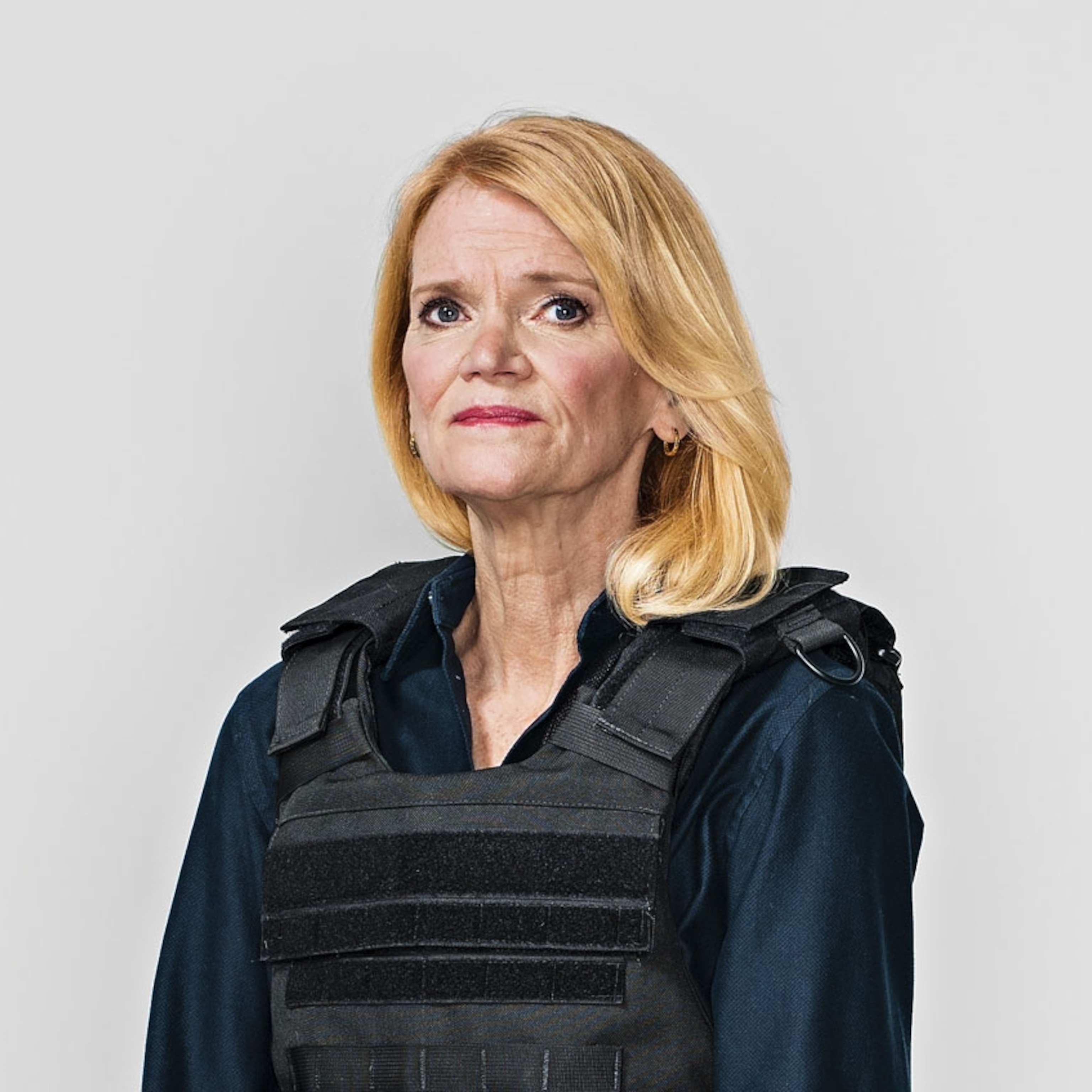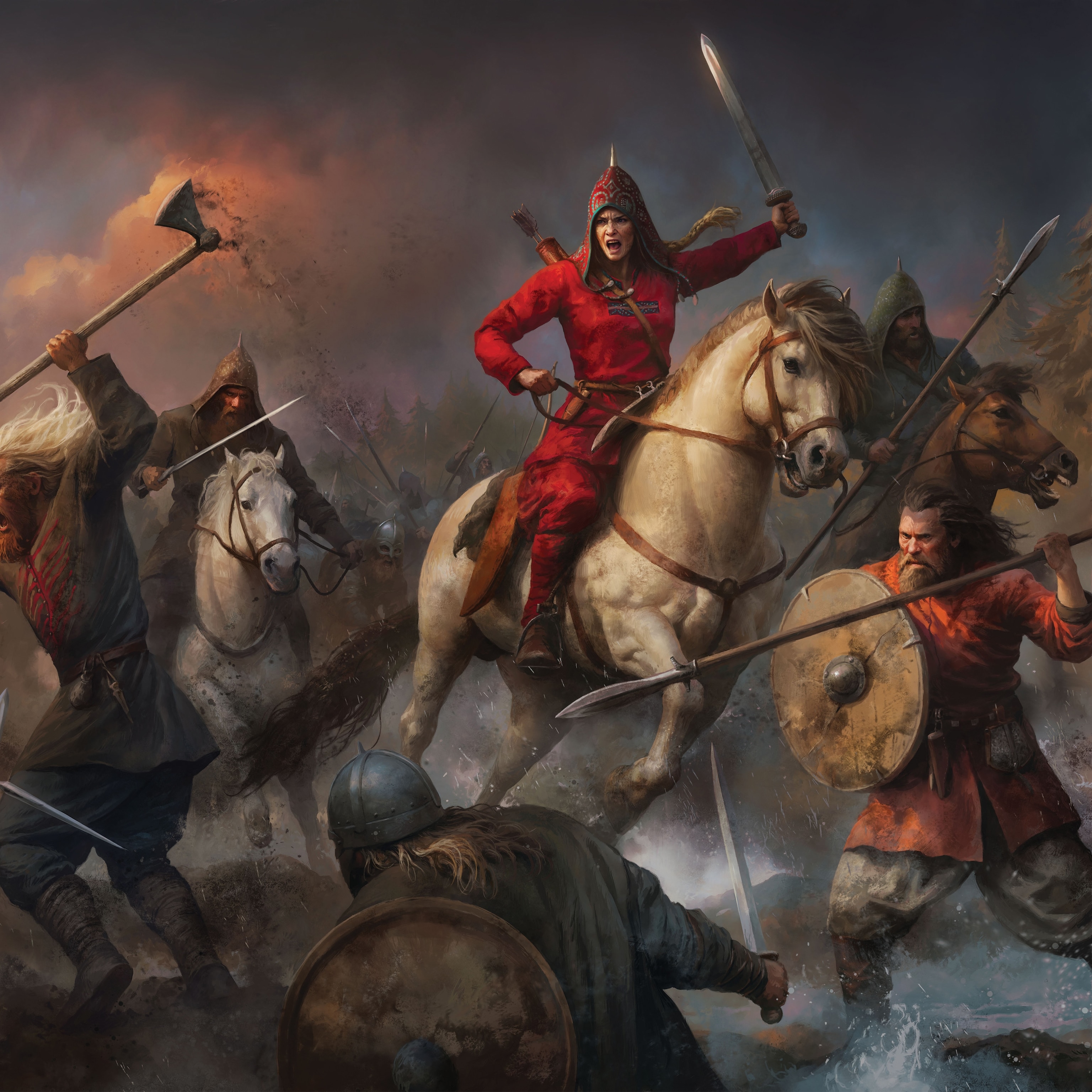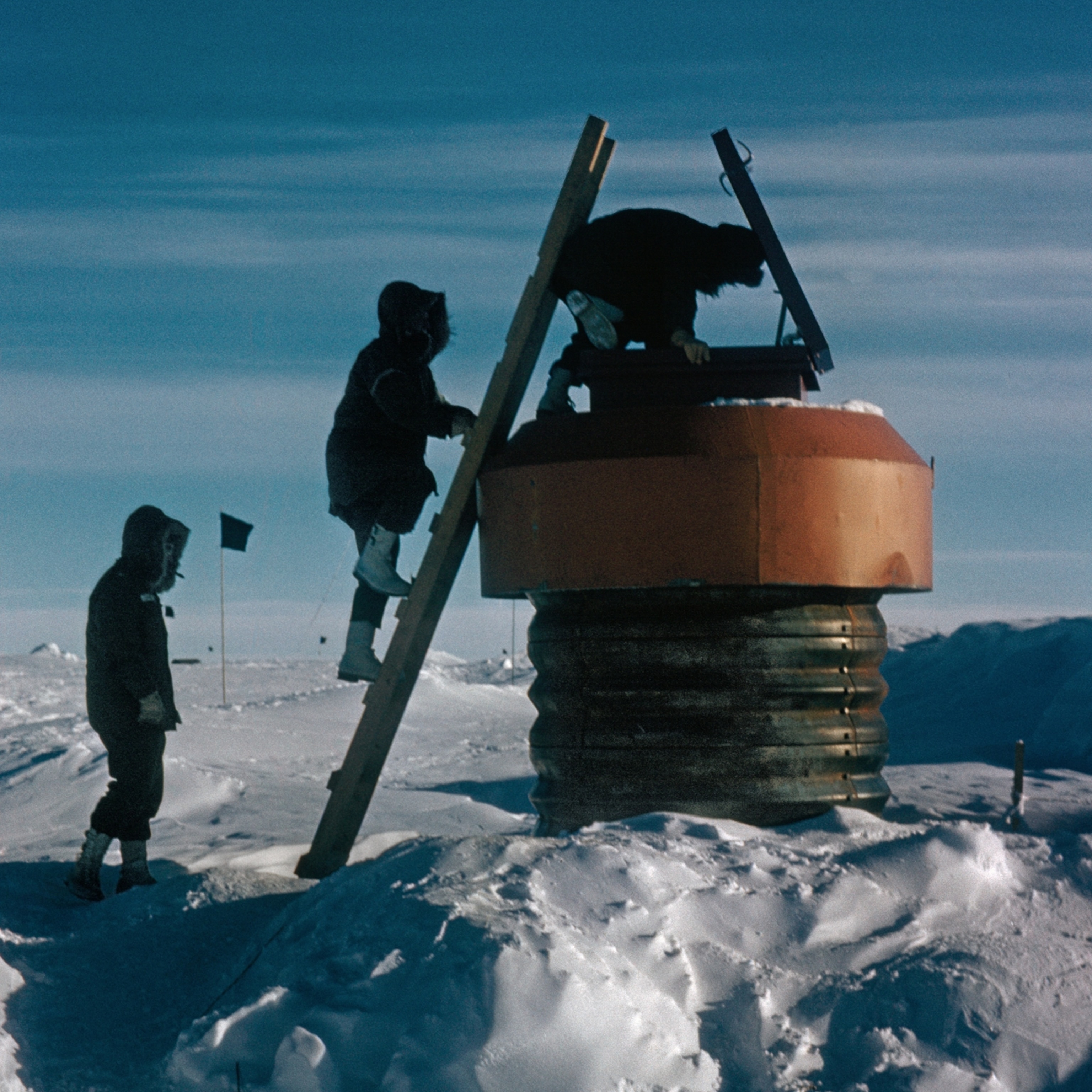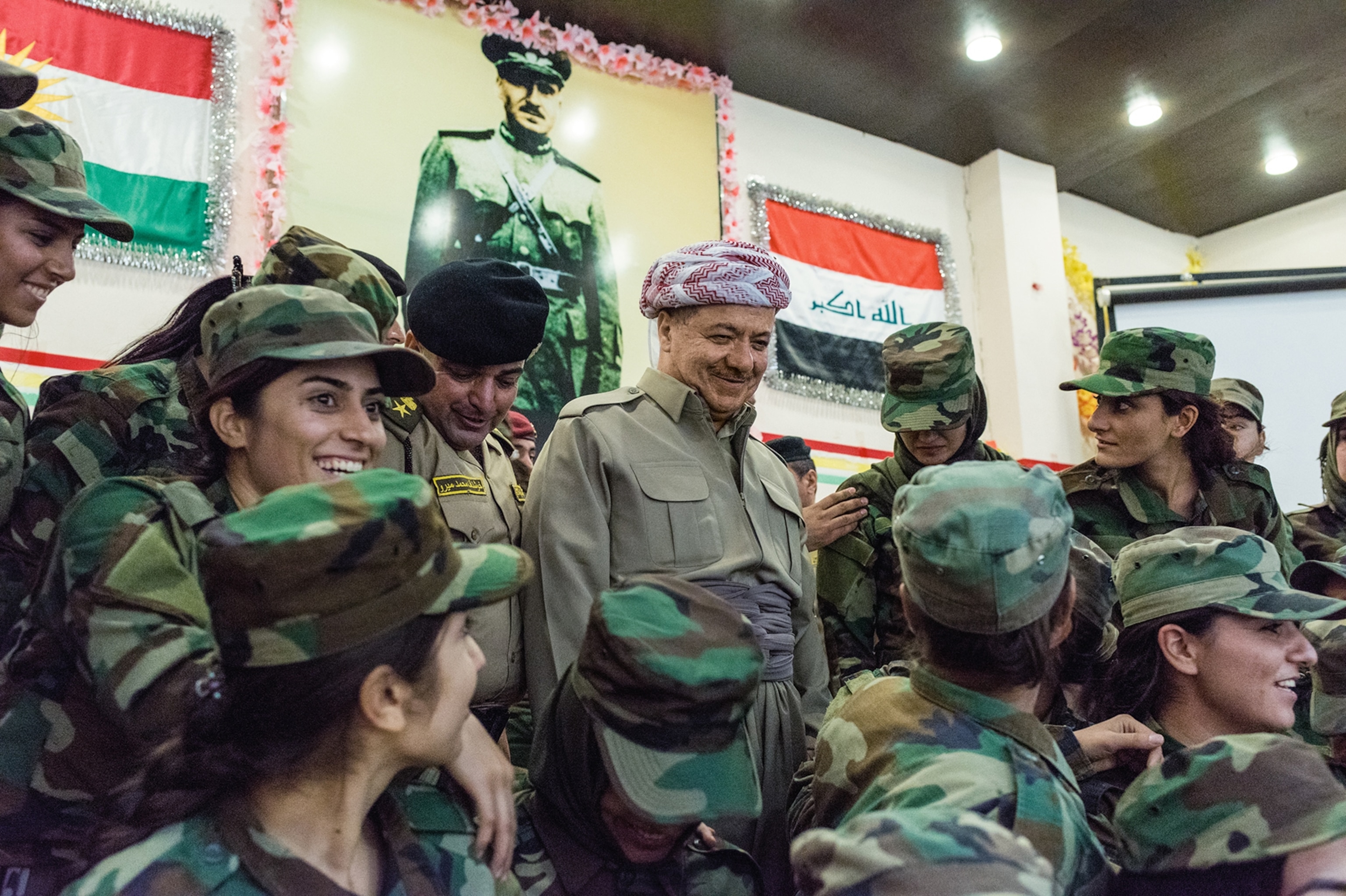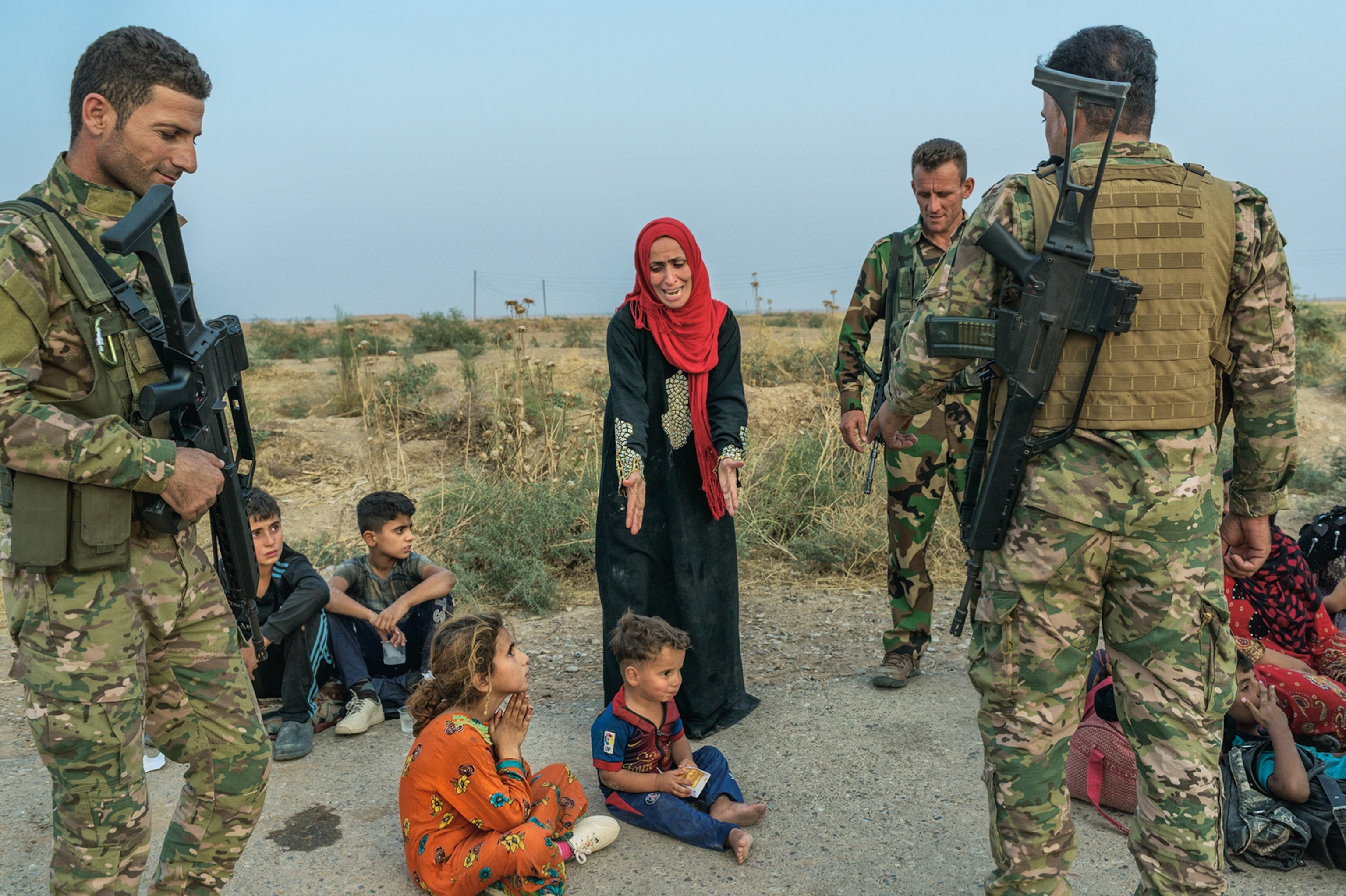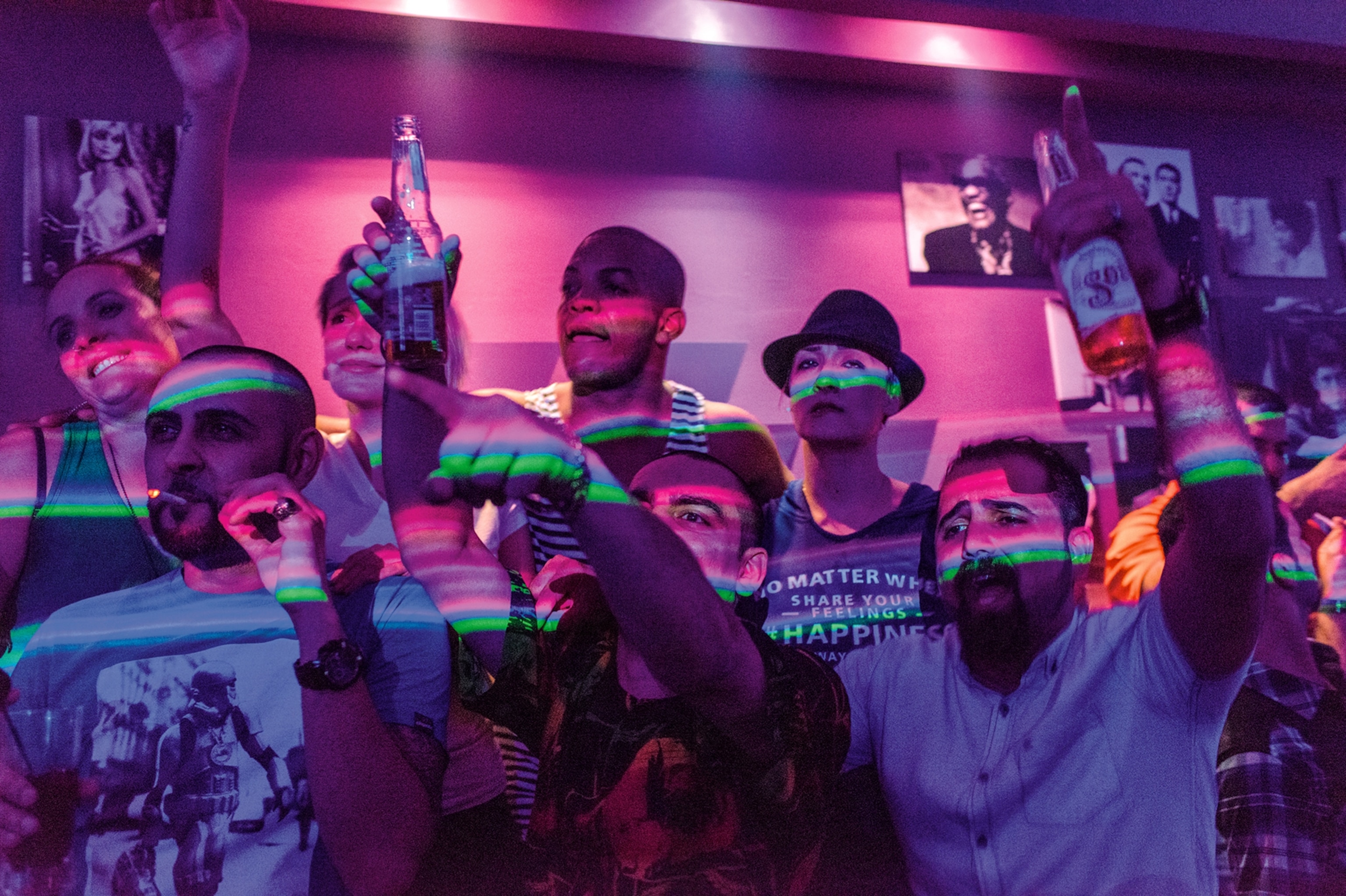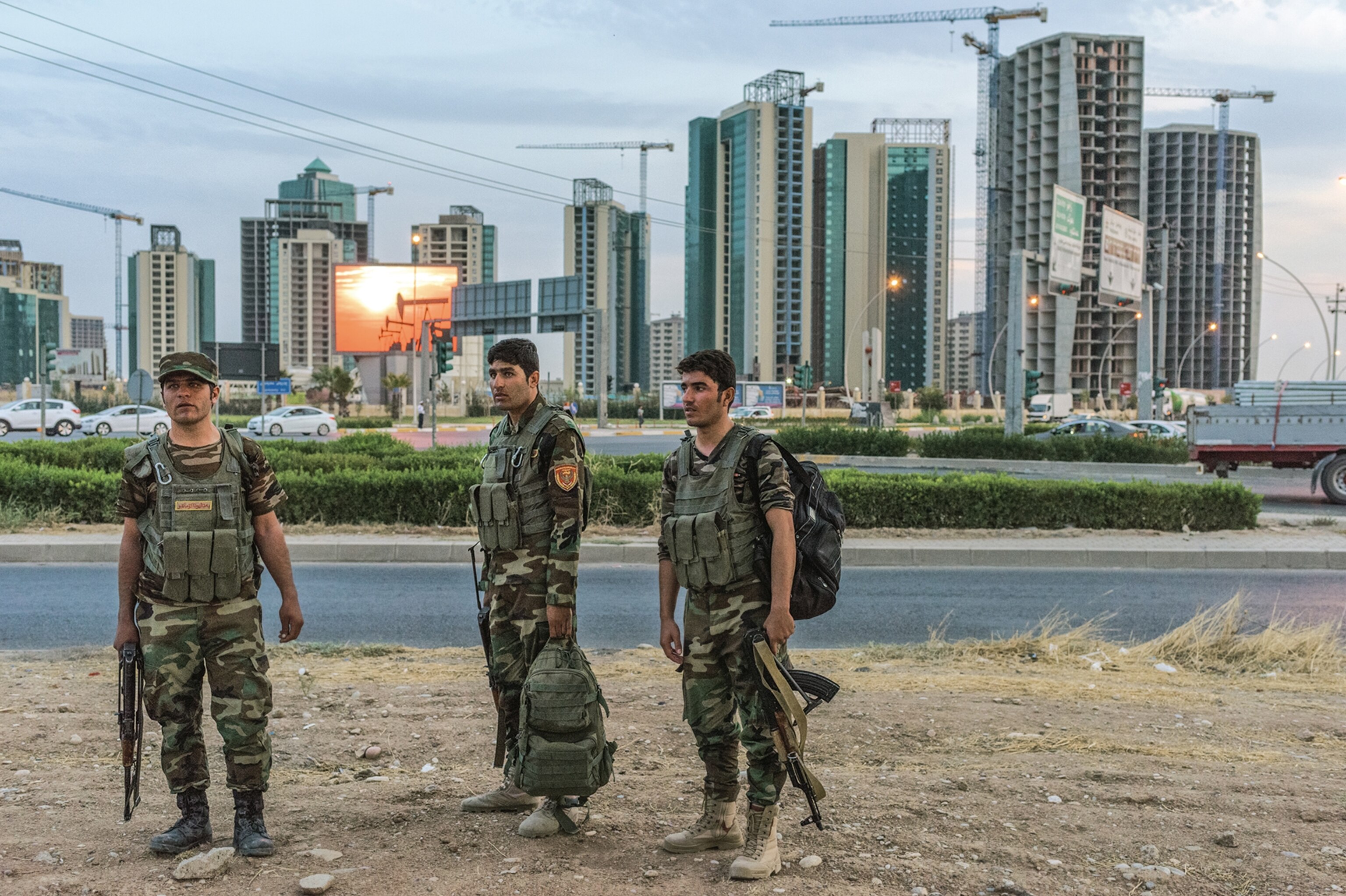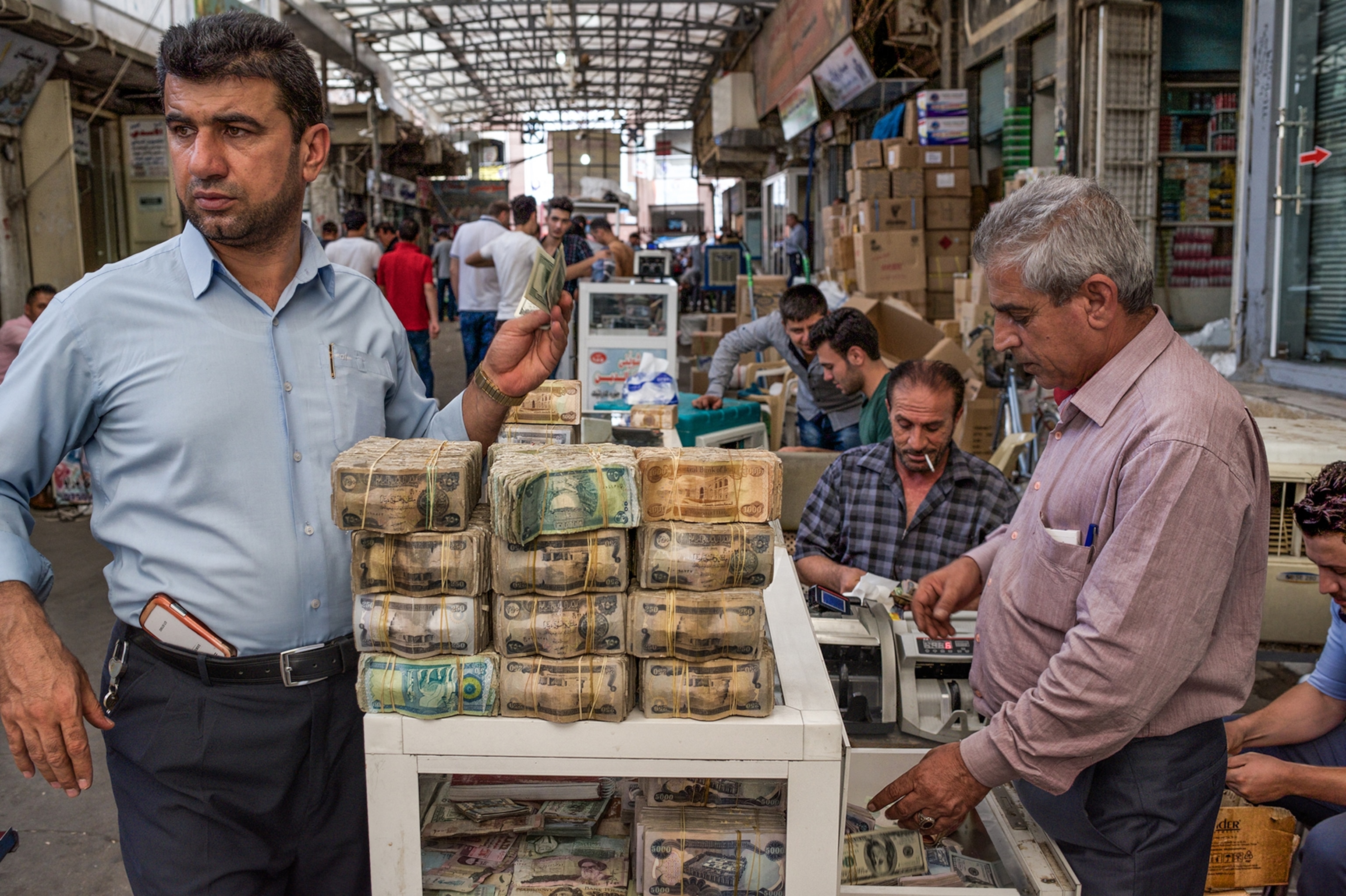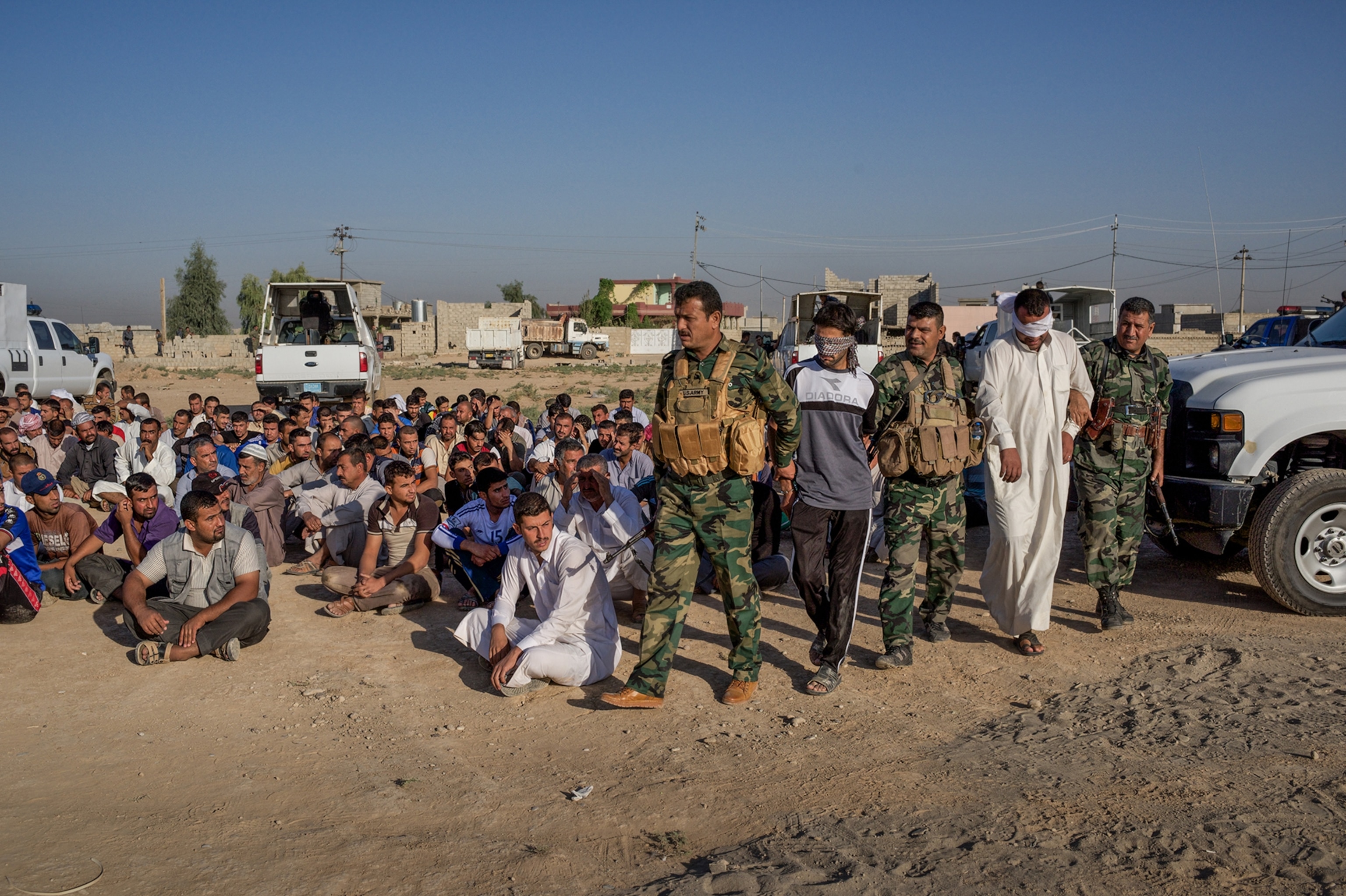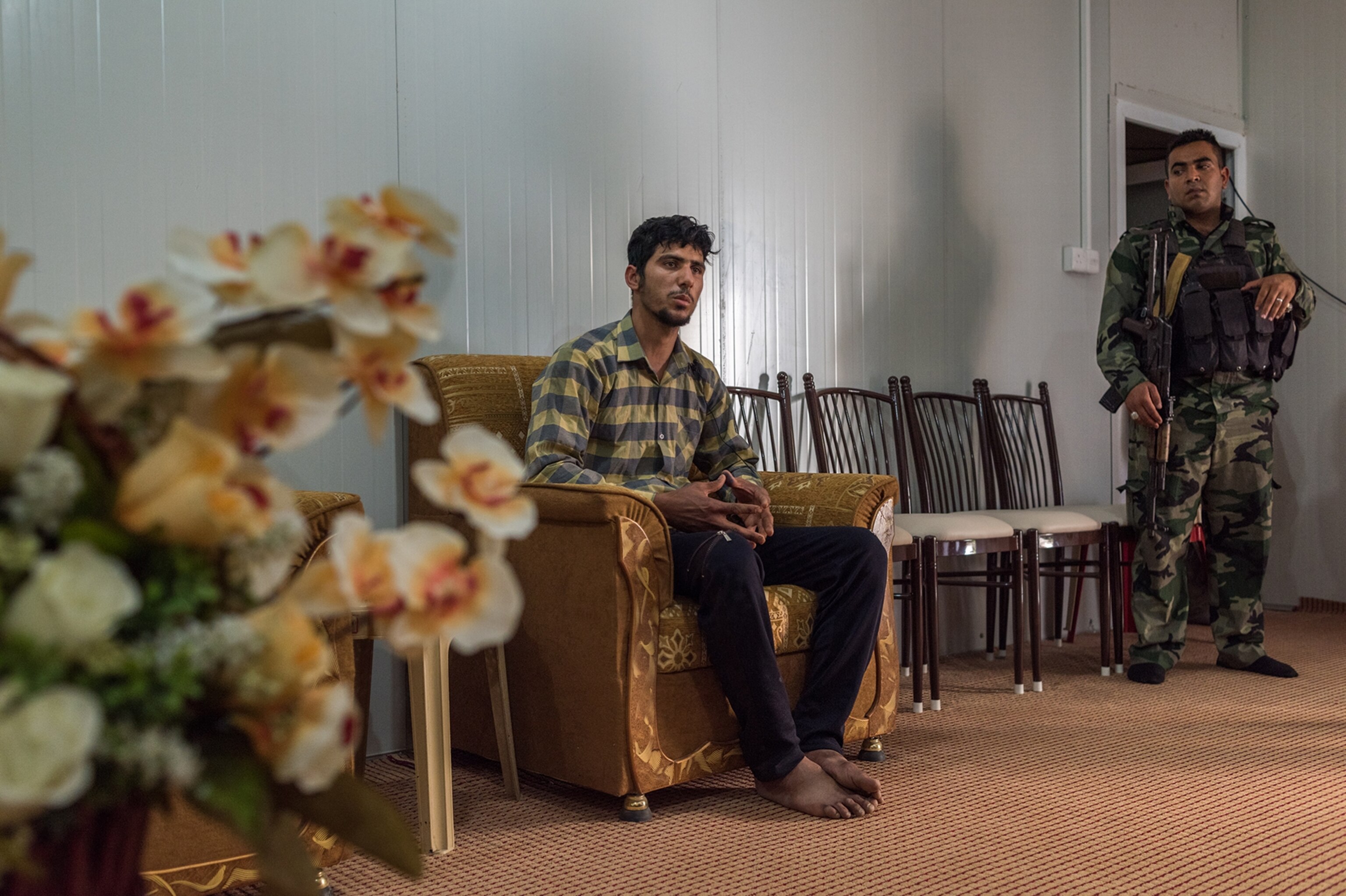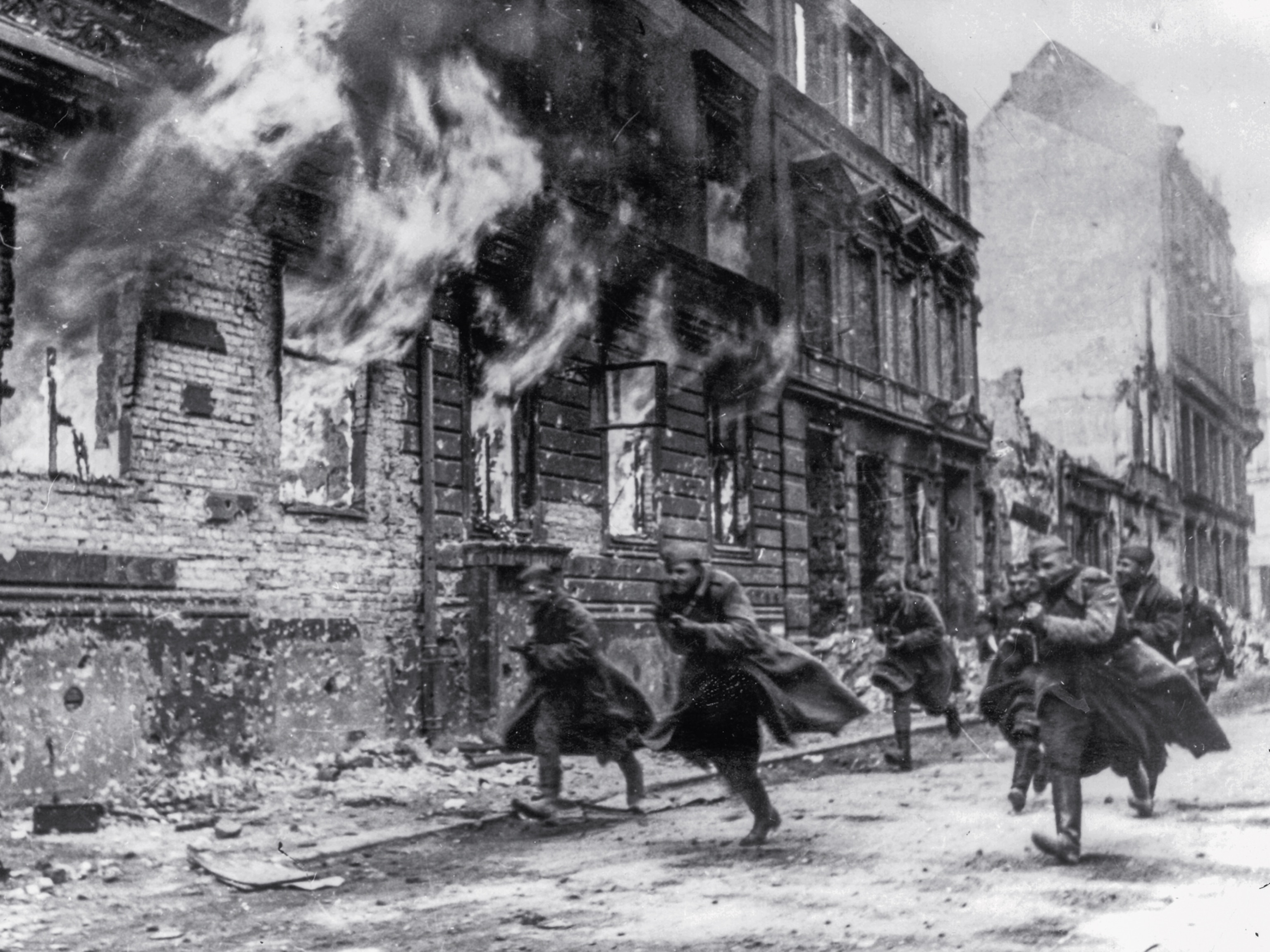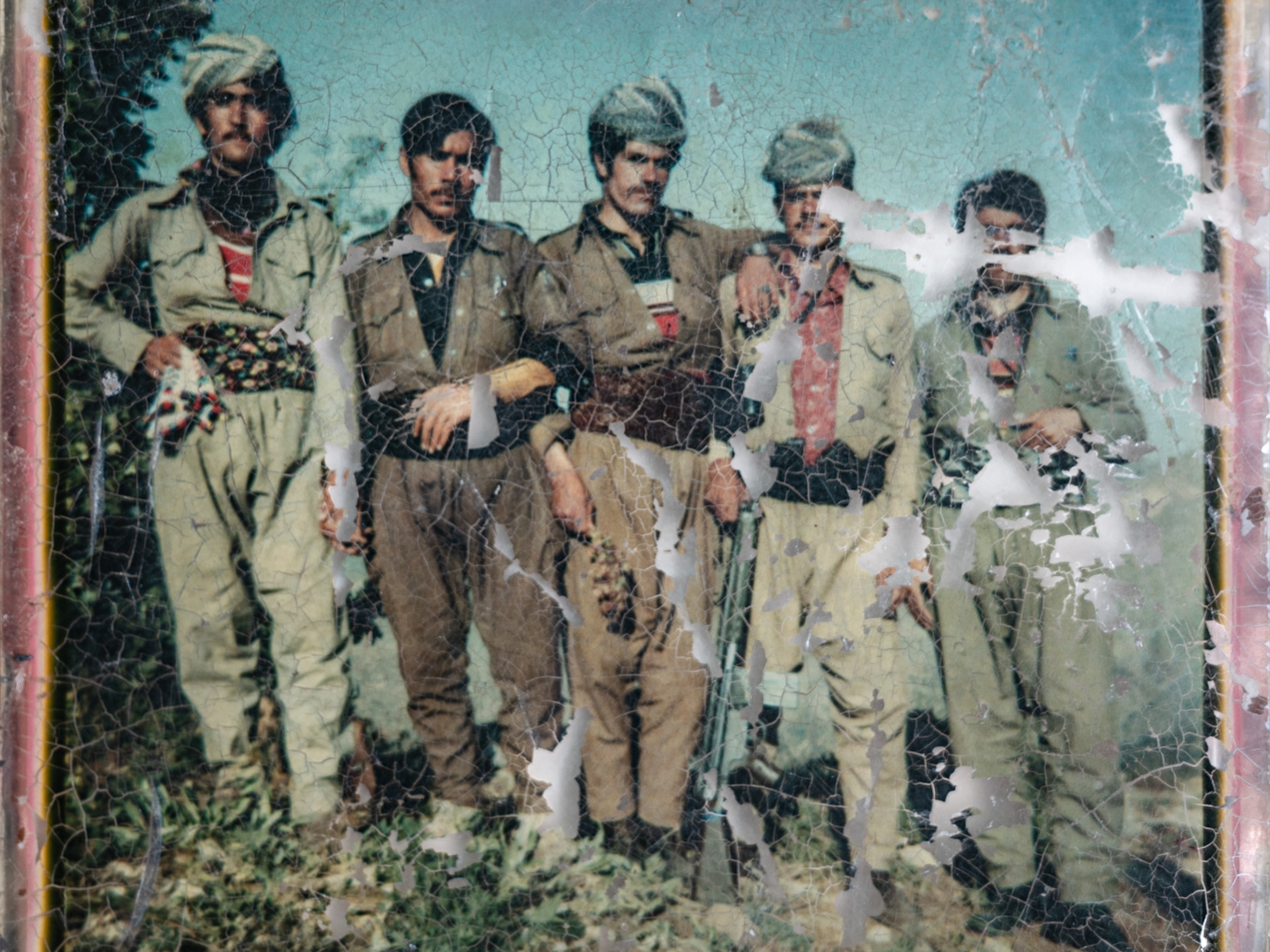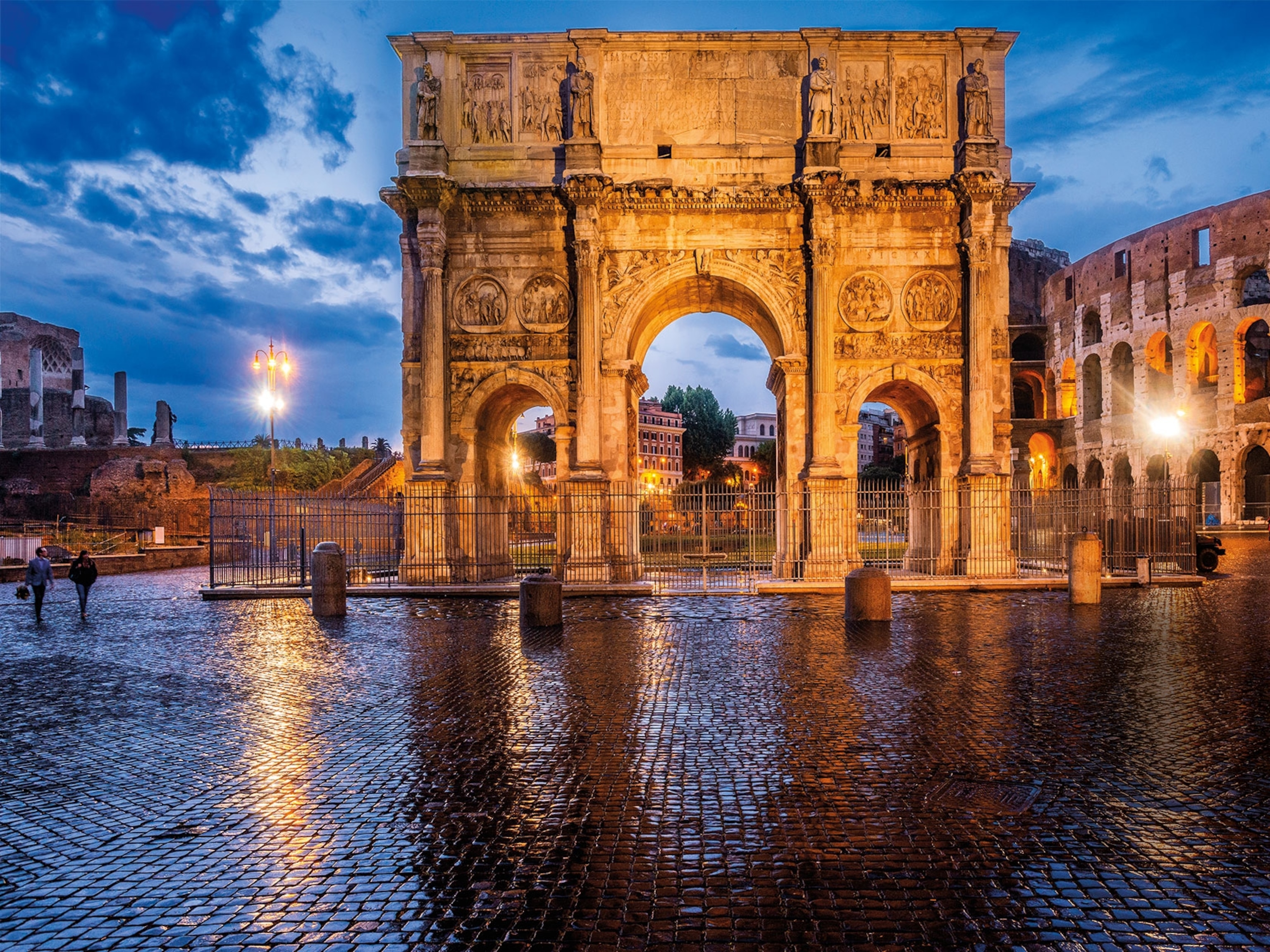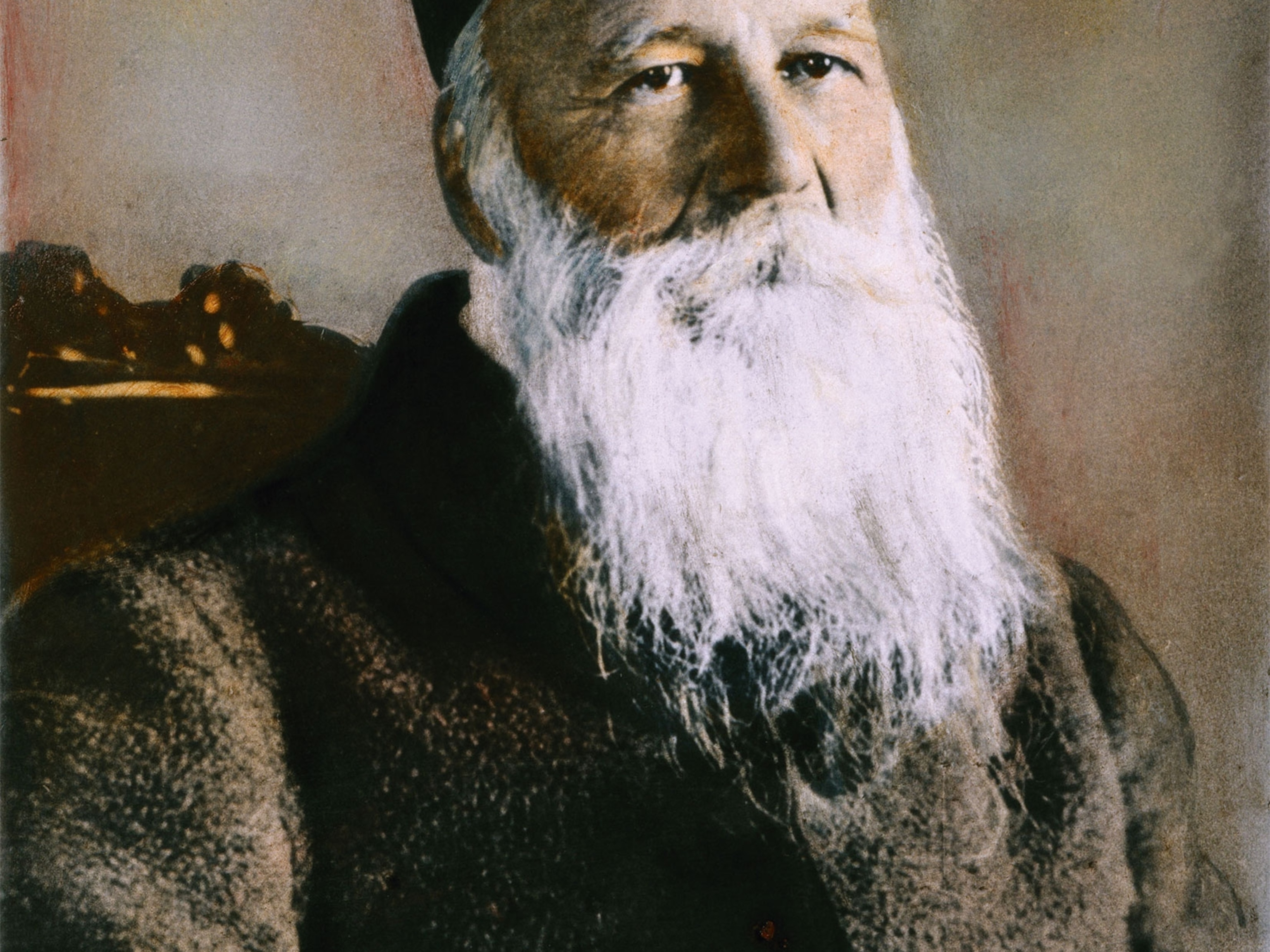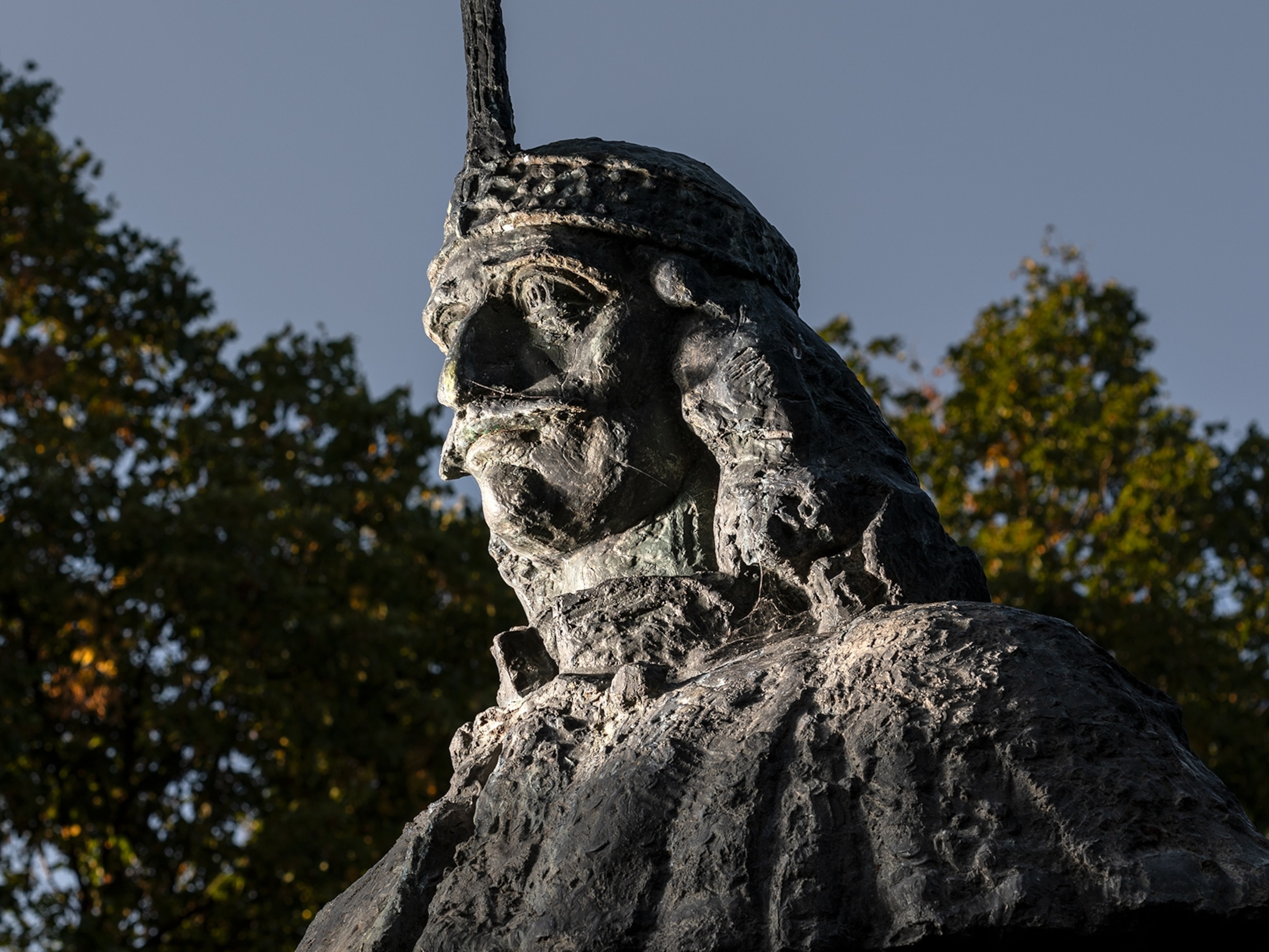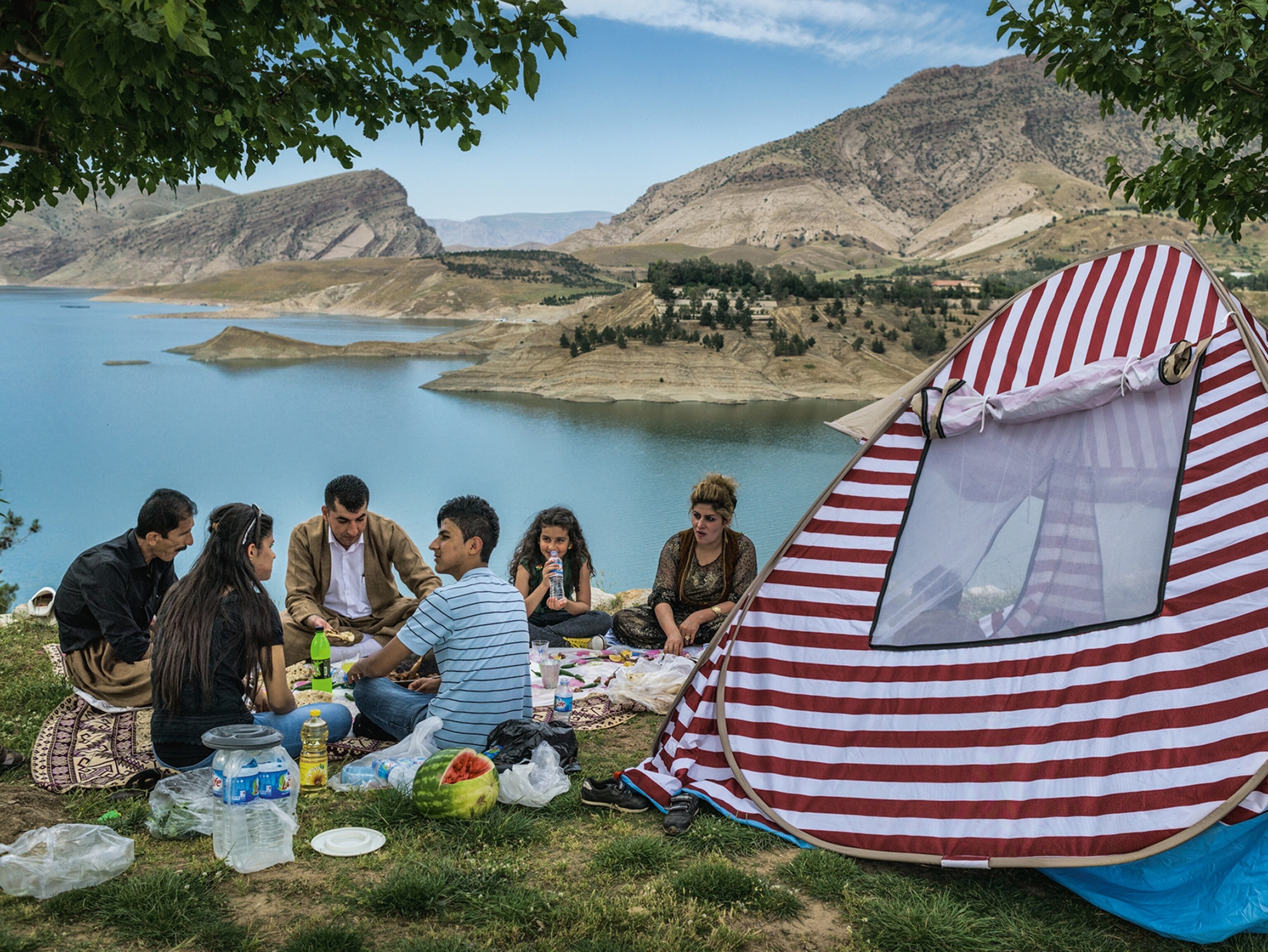
Kurds Fight to Preserve ‘the Other Iraq’
Their “golden decade” of stability in the north is under threat as young men heed the call to battle ISIS.
On the day that Mosul fell to ISIS, Botan Sharbarzheri decided he was willing to die.
The 24-year-old university student smiled as he left his parents’ home in Slemani, a city in Iraqi Kurdistan, bought cigarettes, made a few phone calls. He and many of his friends were on summer break, so he had no trouble raising a group of like-minded young men, would-be warriors, eager and untested. Together, in a haze of smoke and text messages, they sketched out a plan. Questions arose and were quickly settled. Everything seemed clear, righteous. All agreed they would die for their homeland—not for Iraq but for Kurdistan. They would die to protect their families against a brutal enemy, just as their fathers had once done against Saddam Hussein’s army. All they needed was a battlefield on which to prove themselves, a direction in which to charge.
Before the Islamic State (ISIS) tore into Iraq, Sharbarzheri had been restless, slouching toward an engineering degree. He stayed up too late. Never studied enough. Yawned at equations and statistics. Music was his love, and the oud, a relative of the guitar with a slender neck and a deep, round belly, his instrument. Some days he practiced the classical Middle Eastern scales, the maqams, for seven, ten, fourteen hours, his hand leaving the instrument only long enough to light another cigarette or lift a glass of tea.
Sharbarzheri played in public, joined musicians’ clubs, dreamed of recording. But Iraqi Kurdistan’s music industry is small even in prosperous times, so Sharbarzheri’s father, a teacher, had long encouraged his son toward something more practical, like bridgebuilding. Sharbarzheri felt stuck. The Iraqi economy was crumbling, nothing looked promising. Another young man might have lowered his head and said, eraadat Allah—it’s what God wants. But Sharbarzheri was fiercely secular, opposed to zealots of every kind. Until that week in June 2014, divine will meant less to him than forgotten homework.
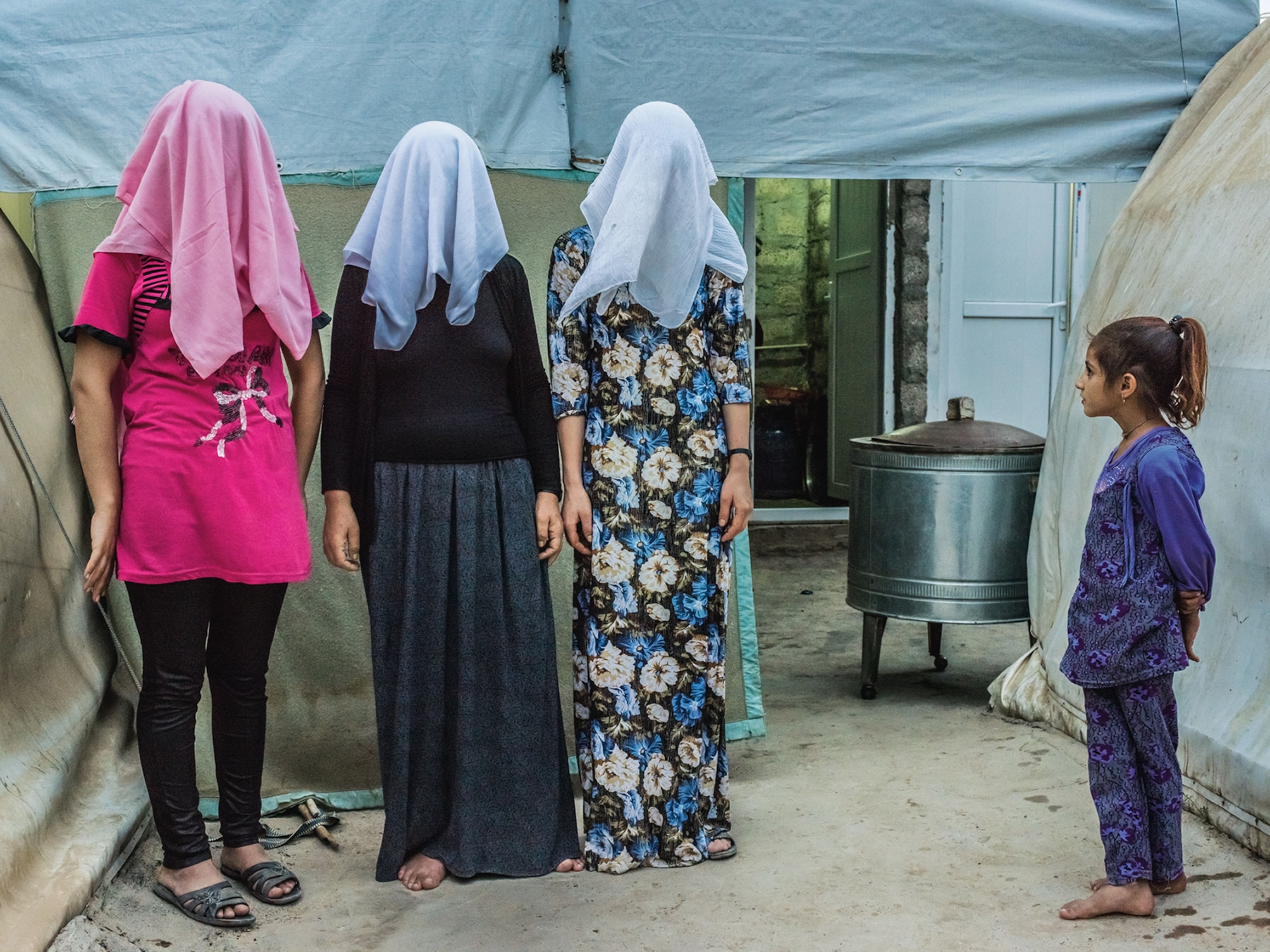
And then the self-proclaimed army of God arrived, burning and killing beneath a black banner and providing Sharbarzheri, suddenly, with purpose. He found in war a clarity he had known only in music. Every choice became a note: Link them well and he might write the score of his life. He owned no weapon, so he would sell his beloved oud to buy an AK-47. He had no training, so he would join himself to combat-hardened men. He had no girlfriend, so there was no one to stop him. His parents, had they known, would have tried—argued, wept, begged him not to go—but some things a man simply must do, and these are often the things he doesn’t tell his mother.
Most young Kurds had not expected another war. At least, not the one brought by ISIS. Only a couple of years before, Iraqi Kurdistan had been thriving. The Americans had deposed Hussein, the Kurds’ most hated enemy, in 2003, opening the way for Kurds to establish control over their mountainous, Switzerland-size territory. Though they remained part of Iraq, they essentially created a protostate of their own. Investment, development, and oil-fueled optimism (Kurdistan sits atop vast oil deposits) were soon transforming the region. Skyscrapers rose over Slemani, the “Paris of Kurdistan,” and Hewler, the Kurdish capital, attended by shopping malls, luxury-car dealerships, and gelato cafés. Universities were built. Something like universal health care was established. Promoters even dreamed up a slogan to lure tourists and businesses: “Kurdistan, the Other Iraq.” And while Arab portions of the country seethed in those years, some five million Kurds entered what many call a golden decade. It was during this era—free of fear, fed on promises—that Botan Sharbarzheri came of age.
“Anything seemed possible,” he told me. “At least for a while. You saw all these things happening. You saw everybody’s life changing. I was just a kid, but still I could see it. My parents, everyone, felt relief.”
I met Sharbarzheri early last year in a café in Slemani, where he’d returned to classes. He is short, handsome, often wears a thin goatee.
He limped, slightly, over to our table. Sharbarzheri had been shot while rushing forward in battle months earlier—a bullet clean through his calf—and many in the café had heard the story. Young men rose to greet him. Young women watched and whispered. In Kurdish culture there are few greater marks of honor.
“A strange thing is that I don’t have to wait in lines anymore,” Sharbarzheri said. And then the veteran blushed, changed the subject. He was making up exams for classes he’d missed during his recovery. They were going badly.
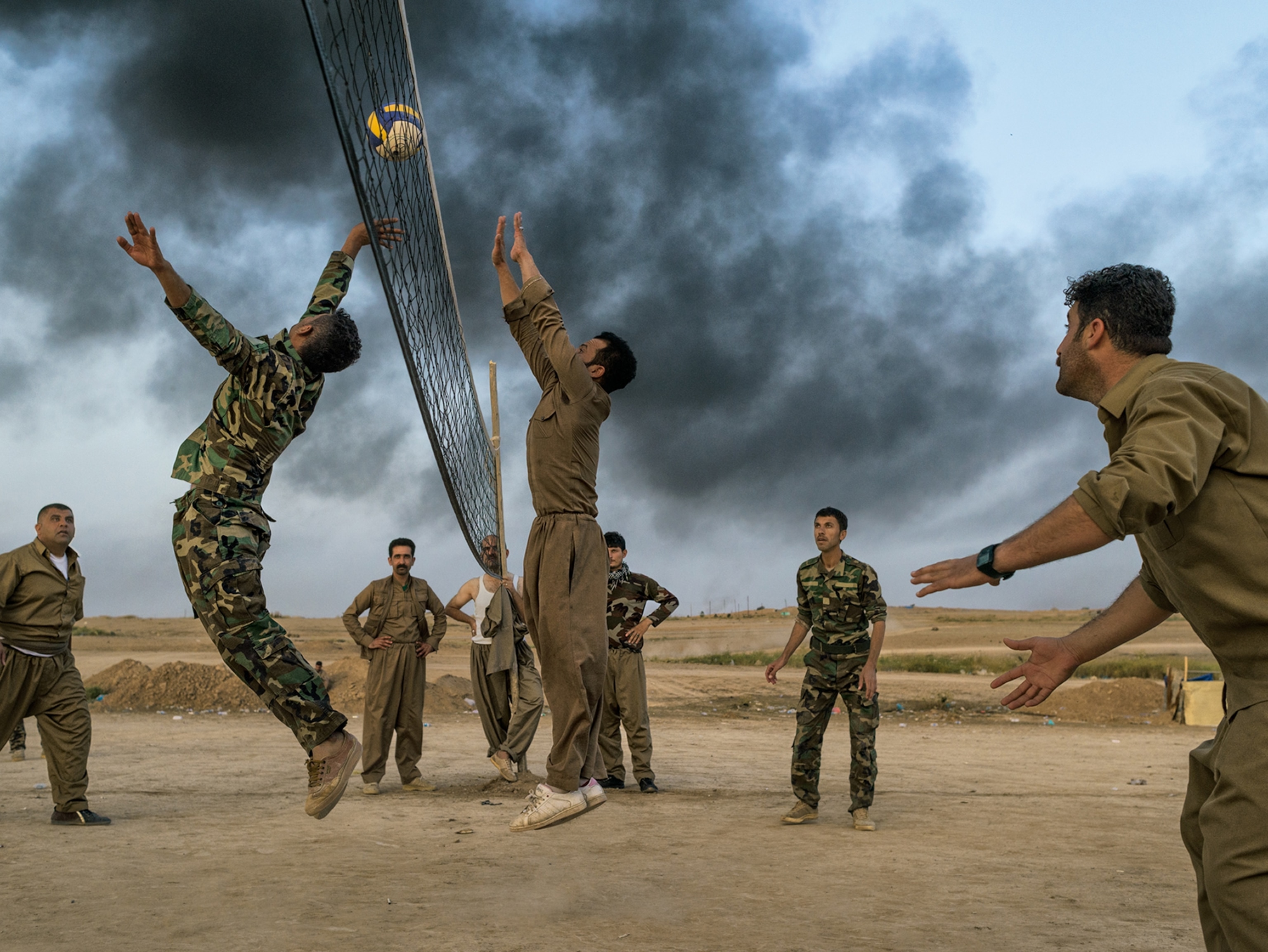
“I am having trouble putting my mind to it.” He thumbed a string of traditional prayer beads as he spoke, though he insisted they held no holy purpose. “Engineering … It’s just so boring.”
Sharbarzheri was like most Iraqi Kurds—under 30 and generally hopeful about the future, though that hope was in steep decline. To him and many of his peers, the world was shrinking, flattening. ISIS was dangerous, but the militants were an outward threat.
Internally, Kurdish political parties, which had in the 1990s fought a vicious civil war, argued over power and money. Relations with Arab-dominated Baghdad, never solid, had been unraveling, and Arab leaders in the Iraqi capital had been withholding Kurdistan’s portion of the federal budget in response to a dispute over oil revenues. The elation of the golden decade was draining away.
Sharbarzheri couldn’t see the point of dull classes if ISIS might yet ruin everything. Or if the Iraqi state—corrupt, ineffective, and reeling—might collapse like a condemned house.
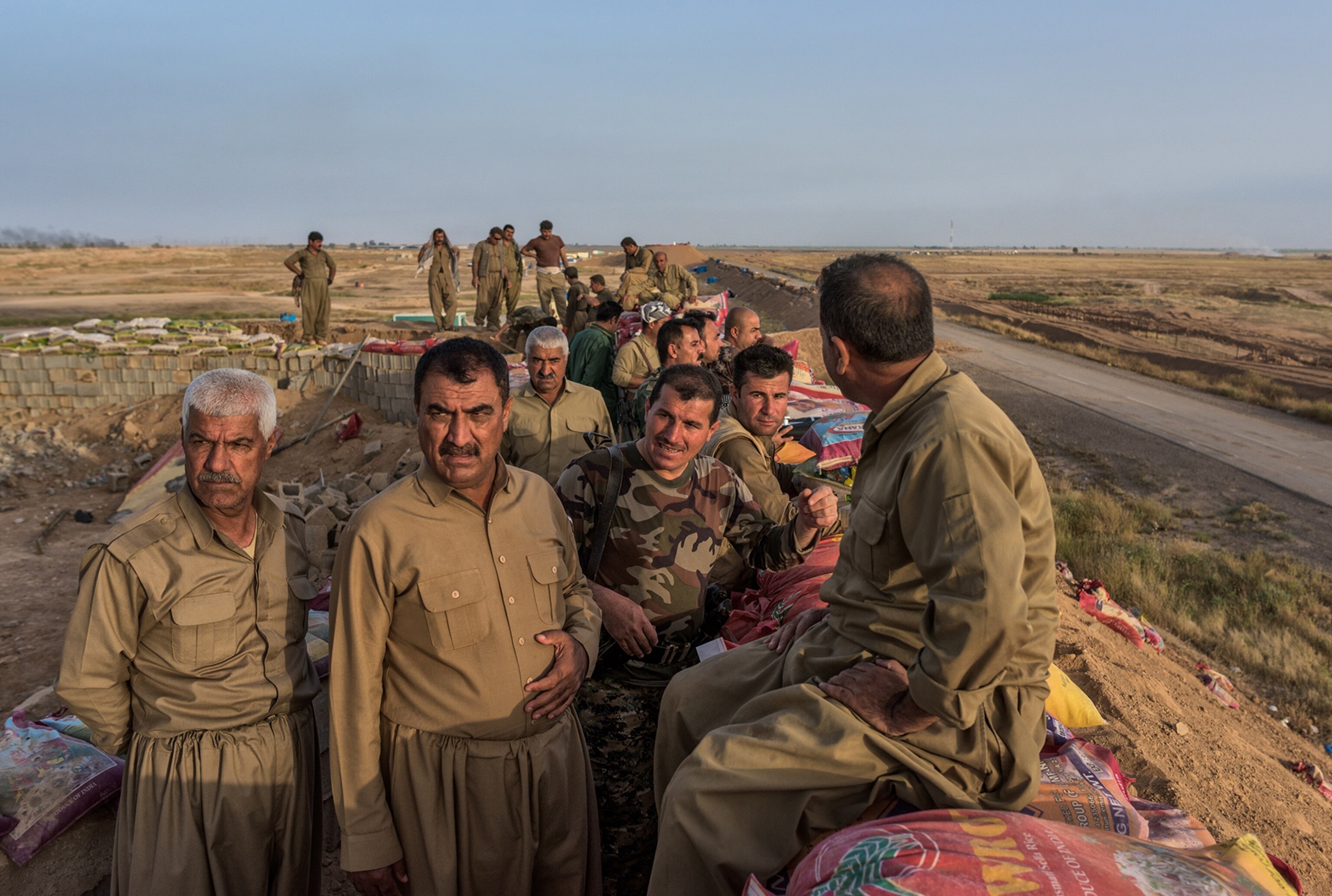
“It’s better if we all die,” he said, “than if we have to live this way much longer.”
It was a particularly Kurdish way to put it. Most of the men in the café would have agreed, and probably many of the women, all of them wearing tight jeans and exuberant makeup, singing and clapping around a tall white birthday cake. When you are young and taste freedom, how do you bear its loss?
Sharbarzheri had decided he would return to the front as soon as possible.
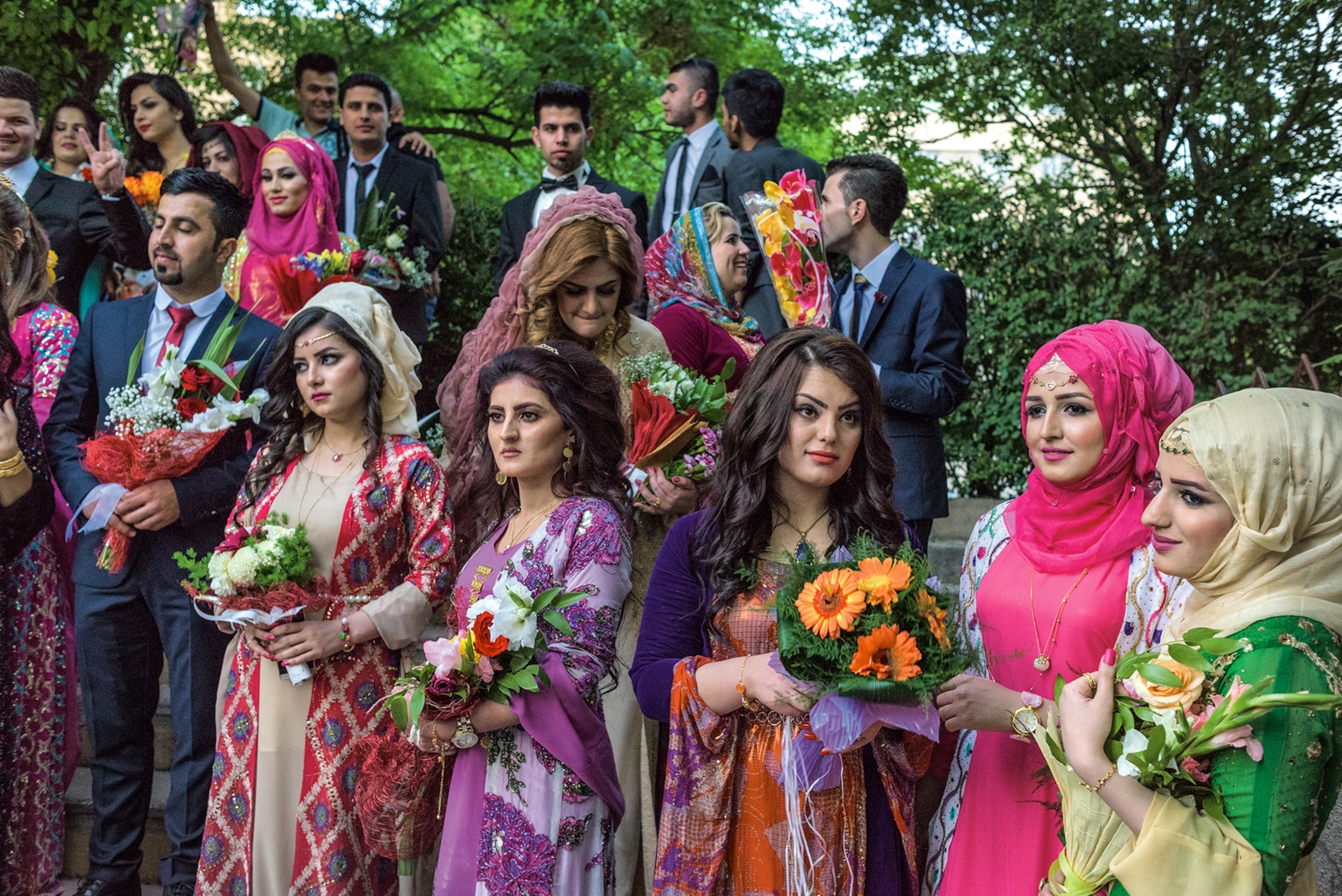
“In Kurdistan we are frozen,” he said, reaching for cigarettes. “Nobody knows what to do. So I will keep fighting.”
Kurds have a distinct culture and language, but except for a few historical moments of self-rule, they’ve always lived under the shadow and control of a larger culture—Persian, Arab, Ottoman, Turkish. Today some 25 million Kurds are believed to live in Syria, Iraq, Turkey, and Iran (though the true size of the population is unknown), and it’s often suggested that they are the world’s largest ethnic group without a nation. This may be true, but it hints at unity. There really isn’t any.
From region to region Kurds speak different dialects and support hyper-local and often fractious political parties, and even if given the chance, they probably wouldn’t try carving a greater Kurdish state out of those diverse lands. Part of the problem is that Kurds everywhere see themselves as underdogs, and they are often blinded by the tragic beauty of their own stories.
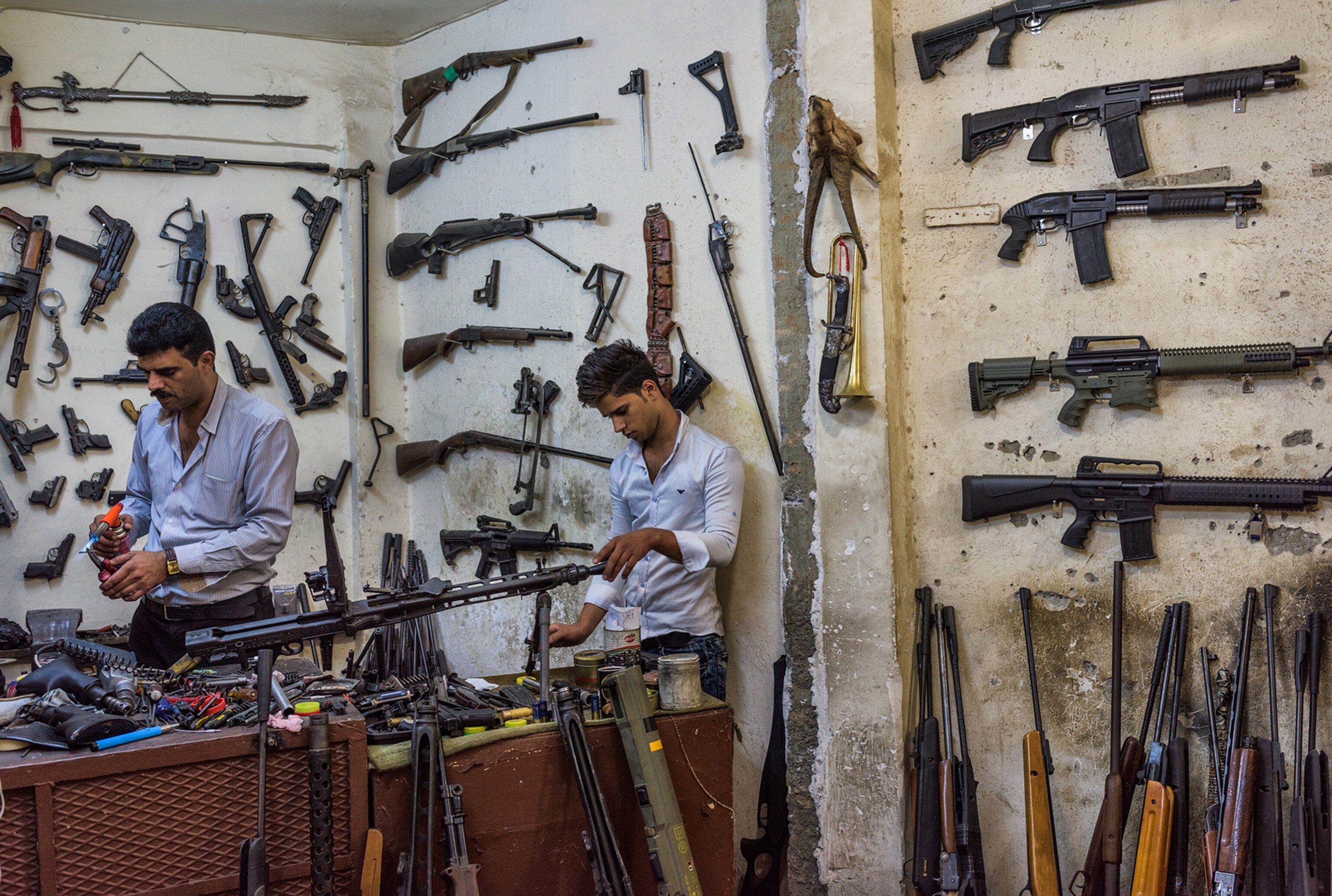
Among Kurdish groups, those in Iraq are closest to realizing independence. They have a parliament and president, oil pipelines of their own, and a military force called the peshmerga, which means roughly “those who face death.” Remaining part of Iraq has long seemed a necessary evil—more a condition demanded by the West, and specifically the Americans, than a Kurdish desire. Every now and then in the years since Saddam Hussein’s fall, the Kurdish government has hinted that it could secede from Iraq, and this enrages its powerful neighbors, Turkey and Iran, as well as Iraqi Arabs in the south. Yet Kurdish leaders always balk, frustrating many citizens, romantics all, who would rather have statehood than, say, peace or a functioning economy.
For the past several years, Western governments have relied on Kurds in Syria and Iraq to do most of the fighting on the ground against ISIS. Many Kurds will expect that effort to be acknowledged. Many will argue that they have earned their independence.
Countless times I’ve stepped into a cab only to have the driver immediately declare personal independence and claim kinship with America and Israel—a state beloved by numerous Kurds because it is small and relentless and surrounded, just as they are, by enemies.
“America, Israel, Kurdistan!” a man said to me recently. He held up three fingers, then drew them into a fist. “Together, we can win!”
“Win against what?” I asked.
“Everything!” His smile was magnificent. “And especially the Arabs.”
He told me he had served in the Kurdish resistance, battling Saddam Hussein. He saw no difference between that enemy and ISIS, which is said to include some of Hussein’s former officers.
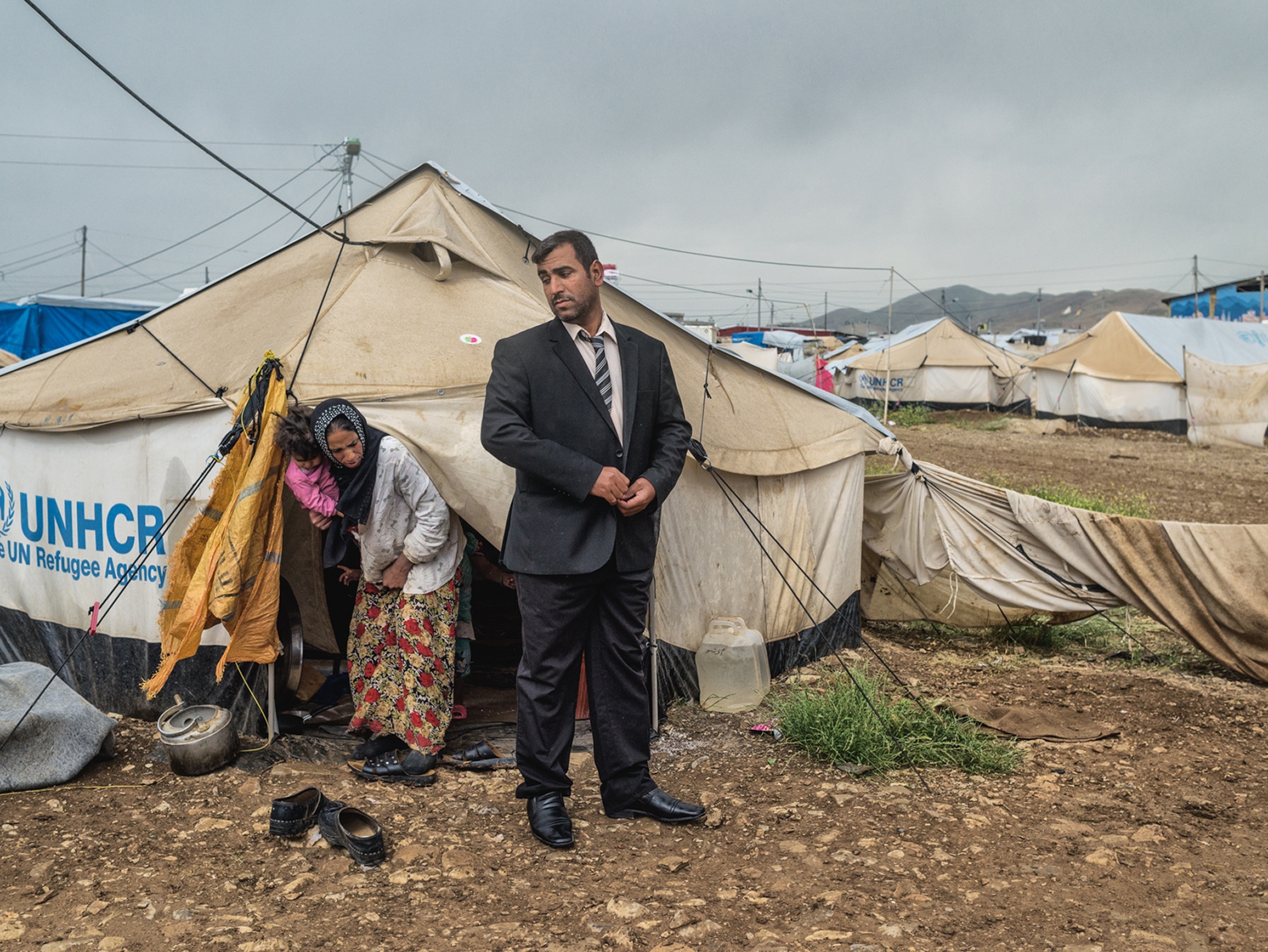
“Same, same,” he said, wiping his palms together. He stepped on the gas and turned up the patriotic folk music. Our sedan-size state streaked through the enormous blue dusk.
About the time Botan Sharbarzheri dropped out and chose war, another young Iraqi joined ISIS. Sami Hussein was 21 or 22 and lived in Kirkuk, a city less than two hours south of Sharbarzheri’s university and that sits near Baba Gurgur, a major oil deposit.
He was a skinny Arab kid with a smudge of beard, impressionable in a way similar to Sharbarzheri, though it would pain either young man to hear me say that. Hussein’s conversion to militant Islam may have begun with the whispers of a local cleric. He may, for a while, have even resisted the allure of the black banner. But there is almost no doubt that he felt despair about the future. The Kurds’ golden decade may have flickered out, but most Iraqi Arabs had never experienced anything like that flowering in the years following the American invasion. In many places their lives had been far worse.
When I met him last spring, just after he’d been arrested, just before he vanished, Hussein said he’d joined the militants because he believed Islam was under attack. He’d been won over by propaganda on Facebook and other social media and by the sermons of radical clerics. Like Sharbarzheri, he wanted adventure, with purpose, and he knew he’d end up fighting Kurds and fellow Arabs.
But while Sharbarzheri was an atheist, Hussein considered his choice a revelation of God’s will, at least at first. It is also true that one cannot be lured to ISIS without being seduced by slaughter. There is no ISIS without murder, ruin, rape, and torture. Without a wrathful, merciless God. So where one young man went to defend, the other came to destroy.
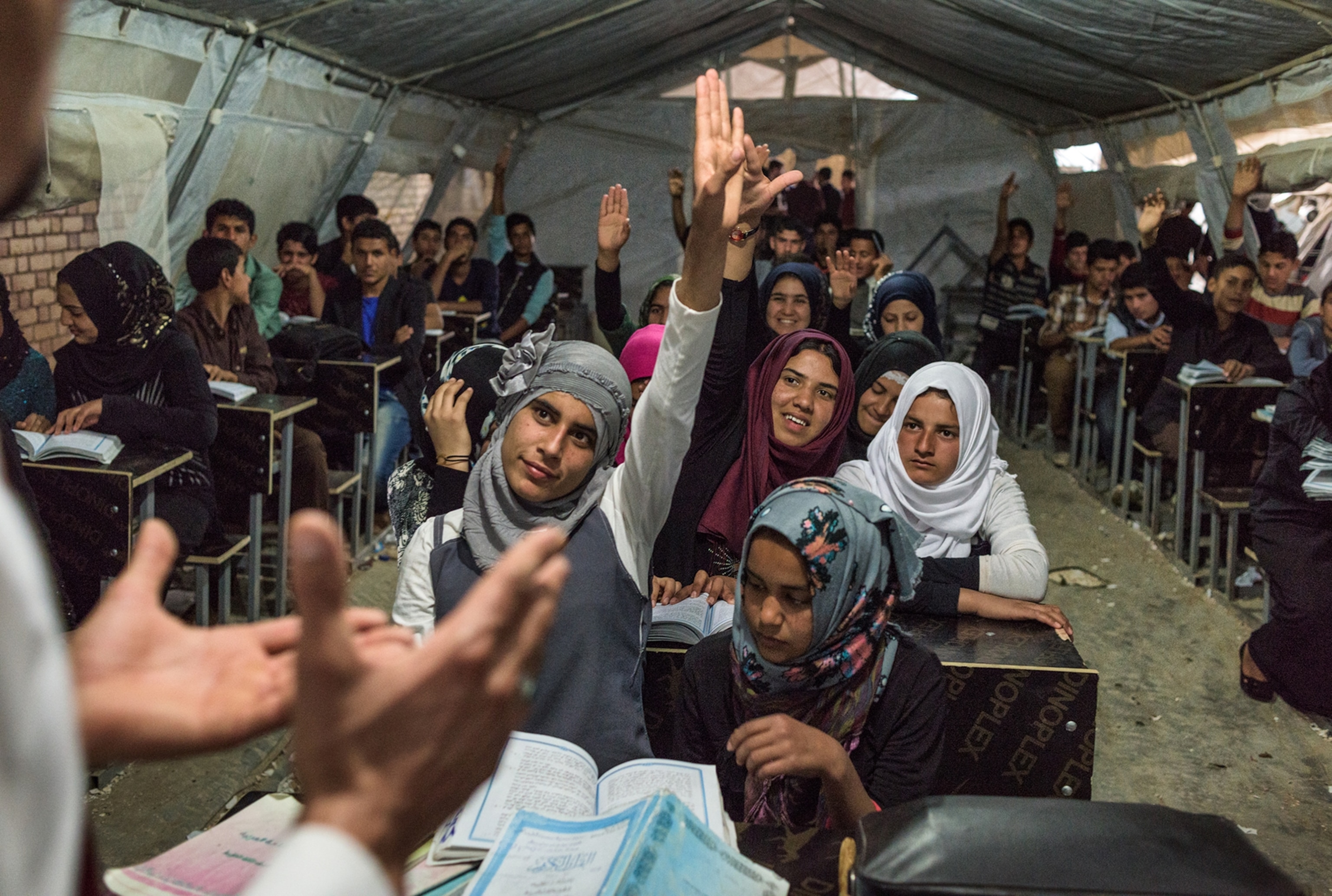
When he left for battle, Sami Hussein apparently also had decided not to tell his mother. He was captured months later, as he sneaked home to see her.
Kirkuk, with its sun-crushed neighborhoods of Kurds, Arabs, Turkmens—and Sunnis, Shiites, and Christians—is Iraq in miniature. Centuries of diversity, love, beauty, and old grudges distilled there onto hot plains where the wheat fields meet the oil fields. In June 2014 the Iraqi Army abandoned the city, the possible resting place of the Old Testament prophet Daniel, ahead of an ISIS assault.
For the Kurds it felt like fate: They have long believed that Kirkuk was rightfully theirs, and Saddam Hussein had for years violently tried to evict them. That June, all the Kurds needed to reset their ancestral stake was to keep ISIS out, and their eager soldiers poured into Kirkuk to fill the breach.
It would not be easy. The speed of the ISIS invasion—and the collapse of the Iraqi Army before it—was astounding. The Kurds’ own security forces were, at first, undermanned, ill equipped, and slow to adapt to the fleet enemy. ISIS fighters swept east and north, capturing Iraq’s second largest city, Mosul, and killing more than a thousand civilians. Soon they had chewed into Kurdish territory and advanced to within a morning’s drive of the Kurdish capital, Hewler (called Erbil in Arabic), and the outskirts of Kirkuk.
Kurds with means prepared to flee. Those without imagined the coming horror. But soldiers and volunteers, brave and disorganized, rushed to meet the militant wave. They threw up scattered defenses along a front line that curved for hundreds of miles along the Kurdish frontier, from the Iranian border in the southeast to the Syrian and Turkish borders in the northwest. Peshmerga forces sometimes arrived at battlefields in taxis, wearing tennis shoes and mismatched camouflage, carrying old and untrue rifles. Among those rushing forward was Botan Sharbarzheri.
By the time he made his way to Kirkuk, at the head of his unit of college-age volunteers, Western nations had backed up Kurdish forces with warplanes. That cover let the Kurds hold off ISIS fighters and then, in places, begin to push them back. Kirkuk was saved, for the moment, and the Kurds became one of the few forces capable of standing against ISIS.
Fighting still raged, however, outside of the city, in small, crumbling towns inhabited mostly by Arabs. Sharbarzheri’s unit had been hastily trained and mostly held back from real combat. A firefight here and there, a few selfies taken beside the enemy dead. The young men of his unit said they were happy to cook, wash clothes, do anything for their fighting comrades, and it was true—though many also dreamed of proving themselves over more than just laundry.
Sharbarzheri’s chance came during a chaotic drive into a village called Saiyid Khalaf, southwest of Kirkuk. His unit was behind the main peshmerga group, which was advancing slowly toward ISIS positions. A commander urged his men on, and Sharbarzheri, giddy, holding the rifle he’d bought with his oud, rushed forward behind the cover of an armored truck.
One of the ISIS fighters began firing beneath the truck at the legs of the attacking Kurds. A round spiraled through Sharbarzheri’s calf and then burrowed into the leg of another peshmerga behind him, shattering bone. Both men fell, and the shooter might have fired again, finished them off, but his attention flicked to other targets. Sharbarzheri tried to stand but couldn’t. He was dragged away, hurried into an ambulance, and soon the Kurds retreated.
Afterward, his parents visited him in the hospital. His mother cried. His father was so angry he couldn’t speak. To risk everything, for what? For bravery? For patriotism? For a country that wasn’t even a country?
But later his father, Mohammed, confided that even during his rage at the hospital he’d been achingly proud of his son. We sat together at a picnic at the family’s home in Kurdistan’s eastern mountains. Evening had come. Bats flitted over a blanket laid with roasted mutton, stuffed grape leaves, and loaves of fresh naan.

“We would all fight for Kurdistan,” Mohammed said. “Even if we don’t always believe in it.”
The day Sharbarzheri was shot, Sami Hussein, the Arab who joined ISIS, was somewhere in the area. Possibly on the same battlefield.
I met him a couple of months later, the morning after he’d been captured during a police raid in Kirkuk, along with a half dozen other young men. At a police compound near the city center, Hussein was led into a narrow sitting room lined with couches. There was a scent of cologne, the stink of cigarettes. He came shoeless and sulking, stooped at the shoulders, wearing a yellow and gray plaid shirt and jogging pants. A policeman placed a small plastic table before him, set a cup of water there. Hussein appeared unharmed. Only his thumb was discolored—stained with the ink used to sign his confession.
A plainclothes detective led Hussein through a list of questions, many of which he’d already answered during an hours-long interrogation. Why did you join ISIS? Are there many foreign fighters among you? What do you do to the Yazidi girls you capture?
That question referred to ISIS’s brutal treatment of members of a small Kurdish ethnic and religious group who are not Muslims—and whose fate at the hands of the militants has shocked the world. The detective asked this for my benefit, a reminder to an American of the terror Iraqis had been left to face alone.
“The fighters take the Yazidis and do anything to them,” Hussein said flatly.
He told me he regretted joining ISIS, that its promises of glory and Islamic truth were empty.
Even if given the chance, they probably wouldn’t try to carve a single Kurdish state out of the lands they claim.
“They’re not Muslims,” he said, shifting in his seat, staring at the floor.
If our roles had been reversed, Hussein might have enjoyed watching me beheaded. Might have done it himself. But now he was a bewildered kid, weary and barefoot. Soon the police commander, a Kurdish general named Sarhad Qadir, escorted me into a small garden where the rest of his night’s catch knelt on bright green grass. They were blindfolded, their hands cuffed.
“What happens to them?” I asked the general.
“They go to prison,” he said vaguely, waving a hand. “What happens next is not up to me.”
There is a rumor, persistent, difficult to ignore, that Kurds and Arabs routinely execute their ISIS prisoners. I asked my translator about it as we left the police compound.
“What happens to the kid?”
“He will be executed, of course.”
“How do you know?”
“Why do you care, man? He’s ISIS.”
The Other Iraq
Really, I was thinking of Hussein’s mother, wondering if she would ever see her son again.
For a few weeks, I tried following Hussein’s trail. I asked policemen, peshmerga commanders, politicians, lawyers, even the Kurdish prime minister. No one could—or would—offer any clues.
For a while, I became obsessed with his case. It wasn’t exactly sympathy—hard to feel that for an ISIS volunteer. But his story contained all the problems facing Kurdistan, Iraq, the Middle East—the questions of how to build and become a functioning nation, win the support of neighbors, and keep those at home, whoever they are, from falling, turning, and coming against you.
Hussein was just one among tens of thousands who’d flocked to ISIS, and when I couldn’t find him, I went looking for others. Many ISIS fighters in Iraq are Iraqi citizens recruited or conscripted from ISIS-held territory. Most are Sunni Arabs, though young Kurds have also gone to the group.
In the city of Qeladize, in Kurdistan, a man named Salah Rashid told me of his 18-year-old brother-in-law, Hemin, who’d joined ISIS in 2014. The young man had been drifting, untouched by Kurdistan’s golden decade, unable to find solid work. Slowly, he’d become radicalized by a local imam, also a Kurd, who lectured on holy war, martyrdom, and paradise.
Hemin and several others followed the man’s sermons into Syria, where they hoped to fight the forces of dictator Bashar Al-Assad. But ISIS leaders soon ordered Hemin and his friends back to Iraq to fight against their own people.
Rashid tracked his brother-in-law’s movements in phone calls and on Facebook, and he came to believe that Hemin was unhappy. He hadn’t enlisted to fight Kurds, and he no longer seemed to believe ISIS’s propaganda. Hemin was killed in October 2014 in the town of Sinjar, which had fallen to ISIS (and was recaptured by peshmerga forces late in 2015). Rashid was told that Hemin died in battle, but he’s never believed that.
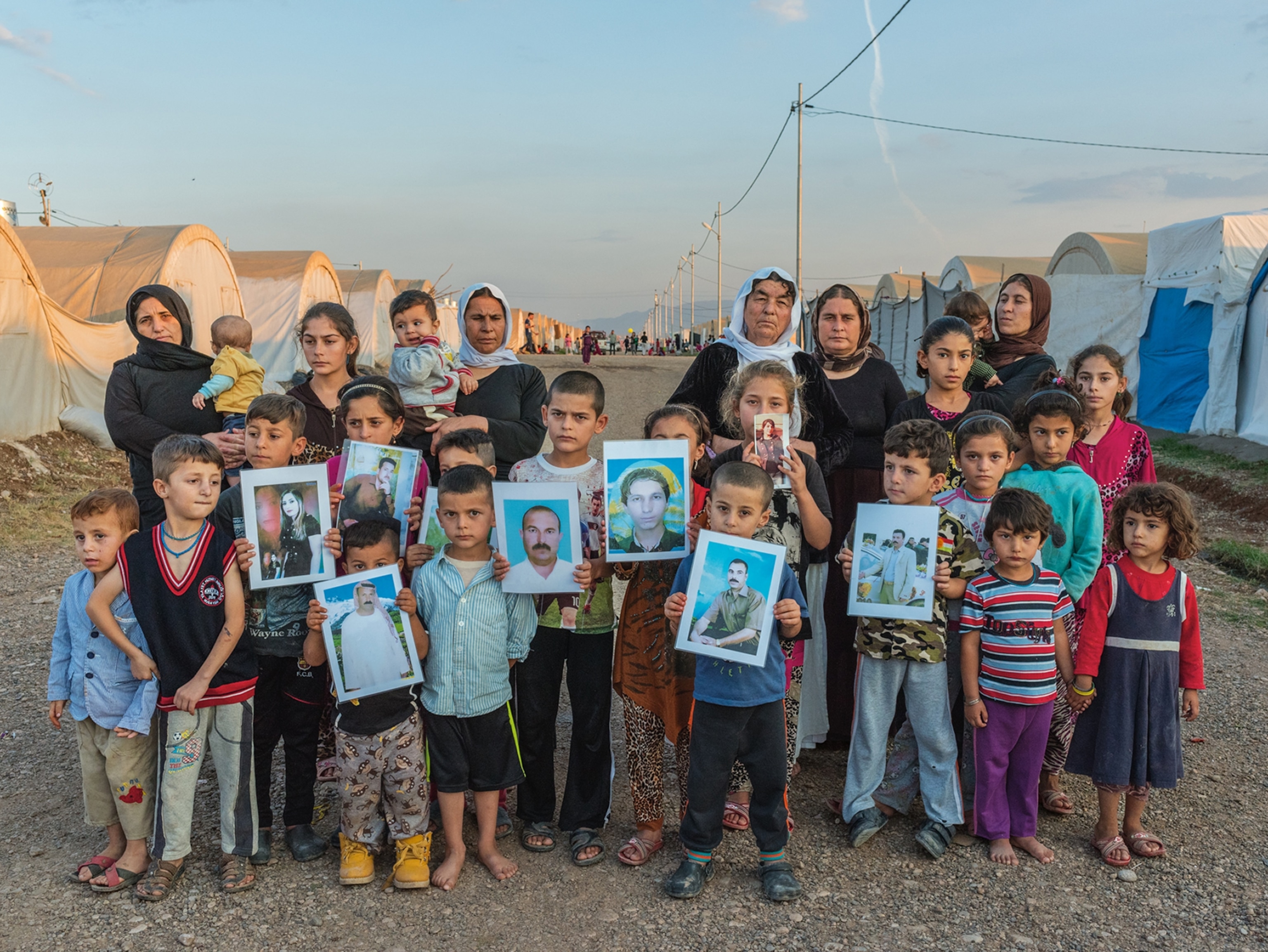
“We think he was going to leave Daesh,” he said, using a common Arabic name for the group. “You see, there was no fighting in Sinjar the day he died. I think he wanted to come home, and they killed him.”
Rashid begged ISIS commanders to let him have Hemin’s body. They refused, leaving his family to ponder a few last photographs on Facebook that showed a pudgy, bemused boy in borrowed camouflage.
“Hemin was a big kid,” Rashid said. “A lot of boys are joining Daesh not because they are extremists, but because they have not found themselves. I blame myself for not taking better care of him. God knows what will happen to him now.”
Rashid was talking about the afterlife, where, he assured me, Hemin would find no paradise.
On the drive back to Slemani, I thought of Sami Hussein. At best he was locked in a cell somewhere. Possibly he was counting out the last days of his life.
The following week I showed Botan Sharbarzheri a photo I’d taken of Hussein. He took my iPhone and stared at the ISIS volunteer.
“I hate him,” Sharbarzheri said. “He makes me think of revenge. I will get my revenge. For what they did to me and what they did to all of us. I promise you.”
Someone had given Sharbarzheri a new oud, more beautiful than the last, though he still kept an AK-47 in his bedroom.
It was a very Kurdish way to put it.
During my last visit to Iraqi Kurdistan, in October, I searched again for Hussein. The police general who’d arrested him could not remember his name, and the Iraqi justice system remained as opaque as ever. I thought I might simply go door-to-door through Kirkuk’s Arab neighborhoods, showing his photograph, but it was a risky plan, and my translator warned that we might endanger anyone who spoke to us. So Hussein had vanished, at least to me. One more ghost among the thousands who’ve gone missing in Iraq over the past 10 years, the past 50.
Away from the front line, my Kurdish friends had all grown wearier, gloomier. The peshmerga continued pushing ISIS back in several places, but elsewhere the Iraqi Army foundered. Major cities such as Mosul and Ramadi still smoldered under the militants’ control, and the Iraqi economy (and with it the Kurdish one) coughed along, dragged down by low oil prices and years of war. The bloodied country seemed to be no closer to reconciliation, and within Kurdistan old wounds ached, while new ones worsened.
In several Kurdish cities and towns, protests flared that month. Many were peaceful—schoolteachers, for example, who demanded wages they hadn’t been paid in months. But other protesters sought political reform, and some of those demonstrations had turned violent, even deadly. In Slemani policemen in black riot gear ringed the central bazaar, and peshmerga units were recalled from the front to keep order. At night military convoys snaked through the city.
Sharbarzheri himself seemed optimistic, despite the unrest. He’d recently returned to school full-time, and switched his major from engineering to international studies. Someone had given him a new oud, more beautiful than the last, and though he still kept an AK-47 in his bedroom, half forgotten, wedged in a closet between some blankets, he no longer thought of returning to war.
“Politics is the only way to make any changes,” he told me.
I must have laughed, because he suddenly became quite serious.
“Really. It’s true,” he said. “In Kurdistan you can do nothing outside the political parties. So that is my next fight.”
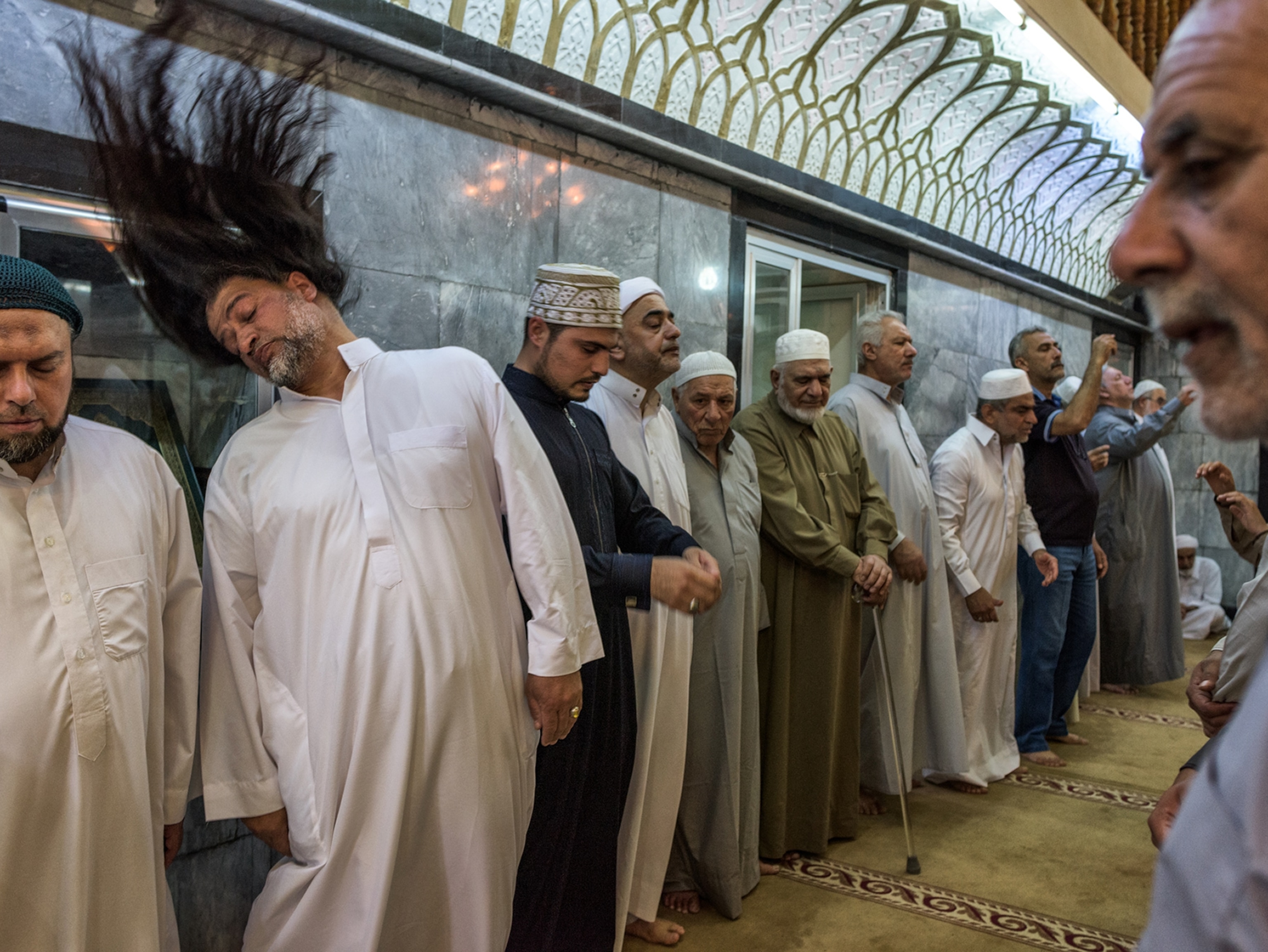
We were walking down Salim Street in Slemani, where on almost any fair night the streets overflow with young Kurds, mostly men, who parade up and down, drinking tea, playing pool, eating, laughing, and texting till morning.
The streets were strangely quiet. Men pushed carts loaded with pomegranates, looking for customers. I noticed the squeak of the wheels, the whine of a cat. No crowds to shoulder through, no heavy clouds of cigarette smoke. I asked Sharbarzheri about it. Figured it was the weather, maybe a football match.
“So many have gone,” he said, and I thought he meant home.
“No, to Europe. They have become refugees. They go to Turkey, then try to get to Greece, or somewhere. Then to Germany. Everyone wants to leave.”
“Why?”
“Everybody thinks Iraq is tawaw, finished. And they don’t believe in Kurdistan anymore. With ISIS, with the economy being crap, they don’t see opportunities. I know so many guys who’ve gone.”
I imagined the crowded camps, the chaos in Europe as streams of hopeful migrants poured in. Many Kurds, if they survived the journey, would join family already living on the continent. The exodus had begun years ago. It was simply picking up pace.
“And you?” I said. “You’ll stay?”
Sharbarzheri smiled. “Yes. I am that kind of Kurd. I’ll never leave.”
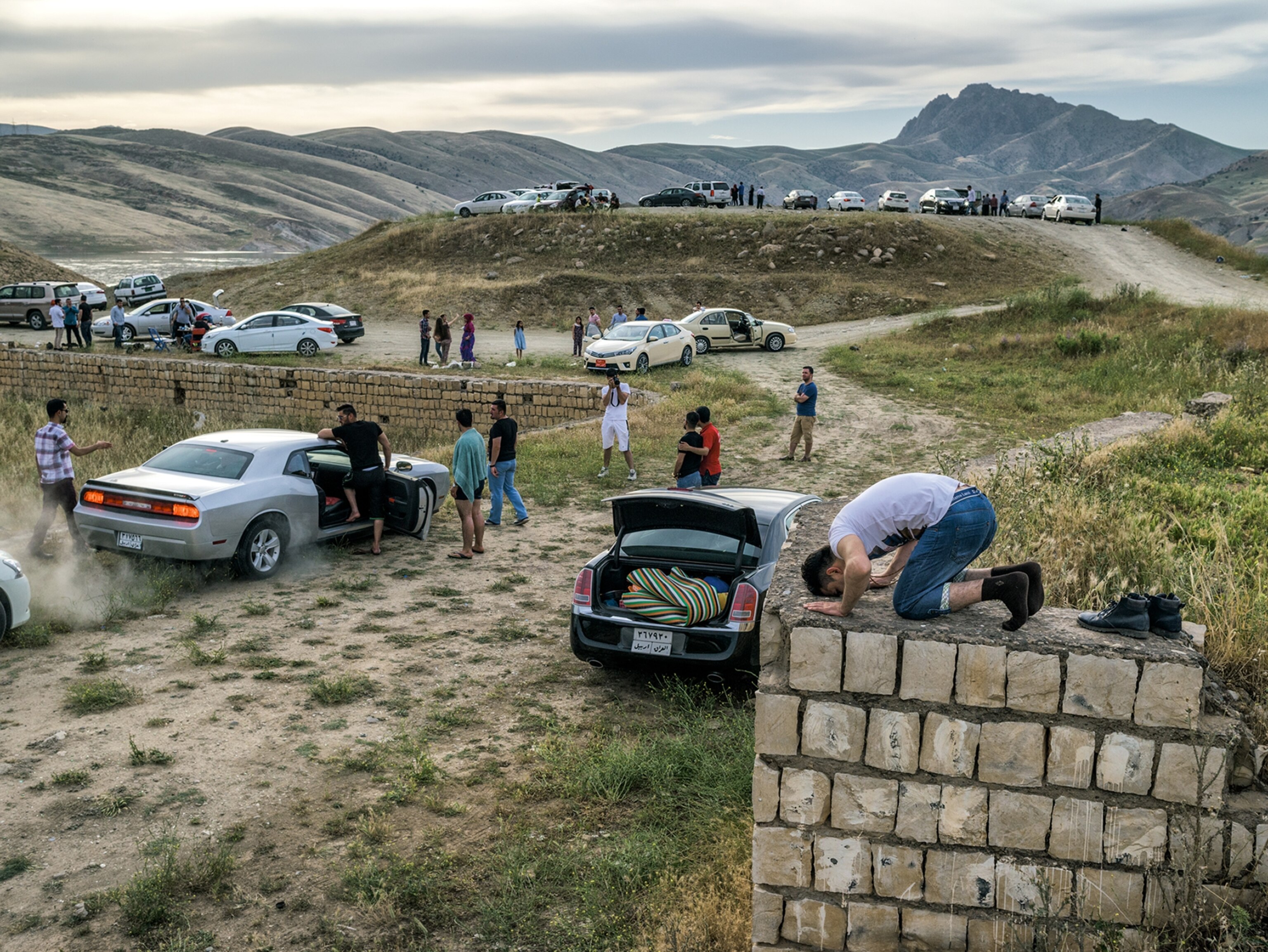
What surprised you during your fieldwork?
I was amazed at the fragility of the idea of Iraq. Not many Iraqis—whether they’re Kurds, Arabs, Turkmens—think the country can last. For them, Iraq was never a real nation. It was always a dream cobbled together by Western powers.
